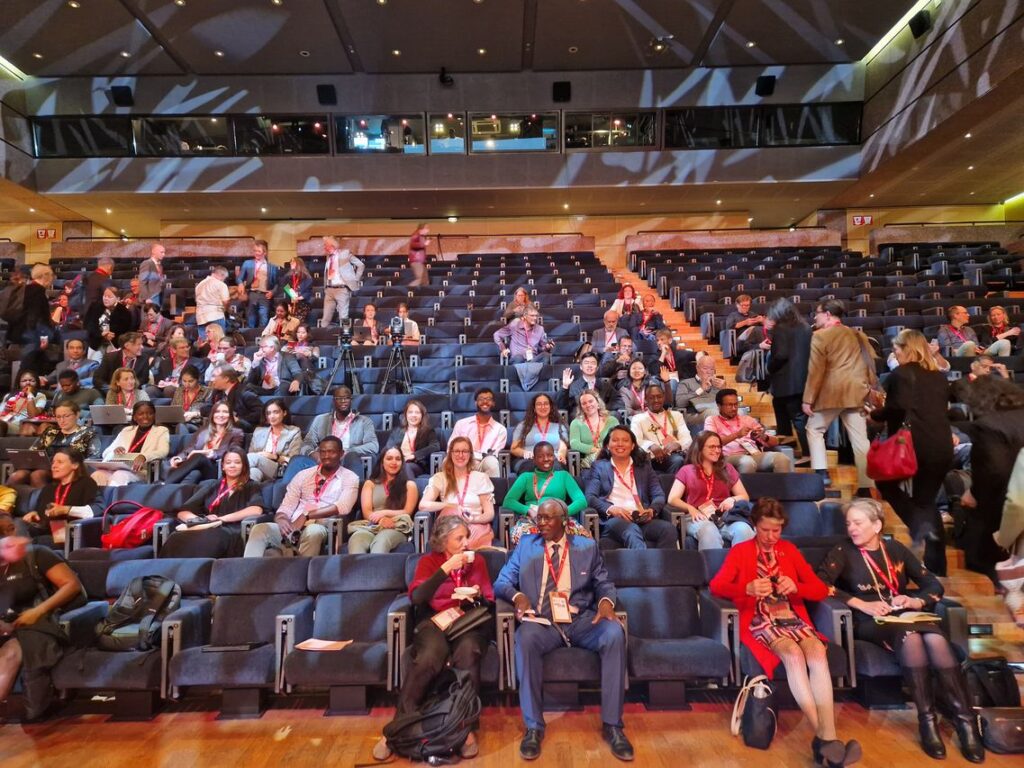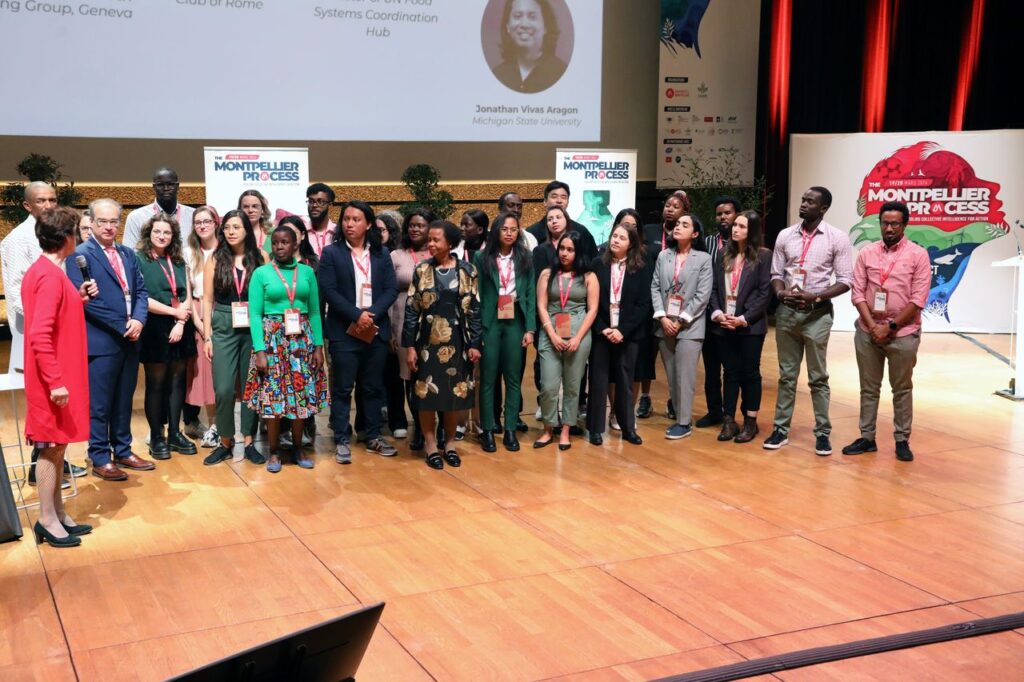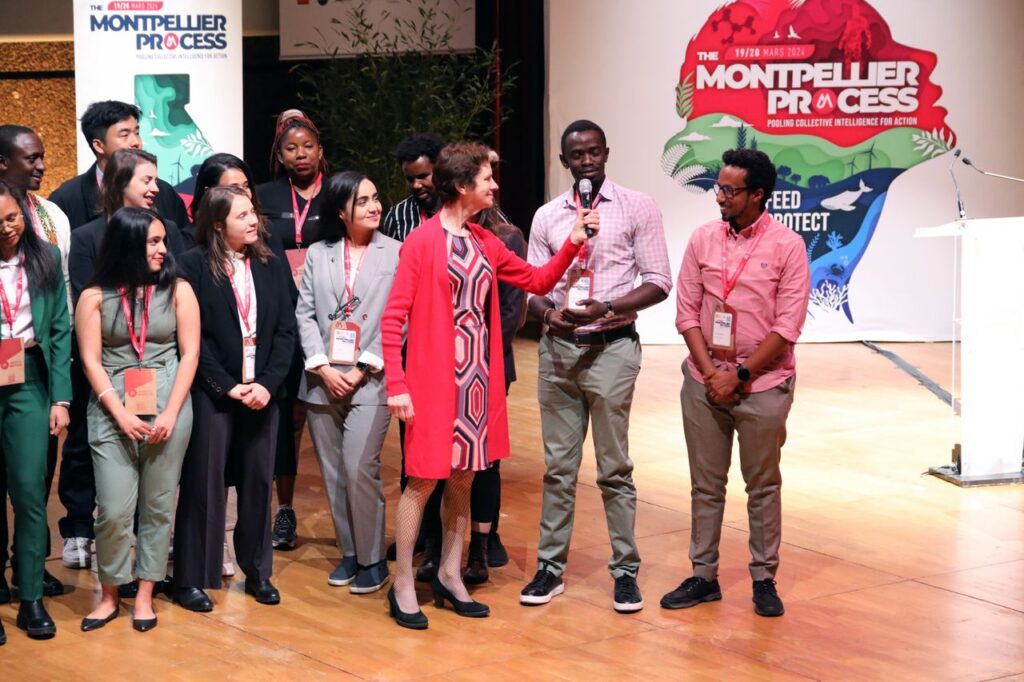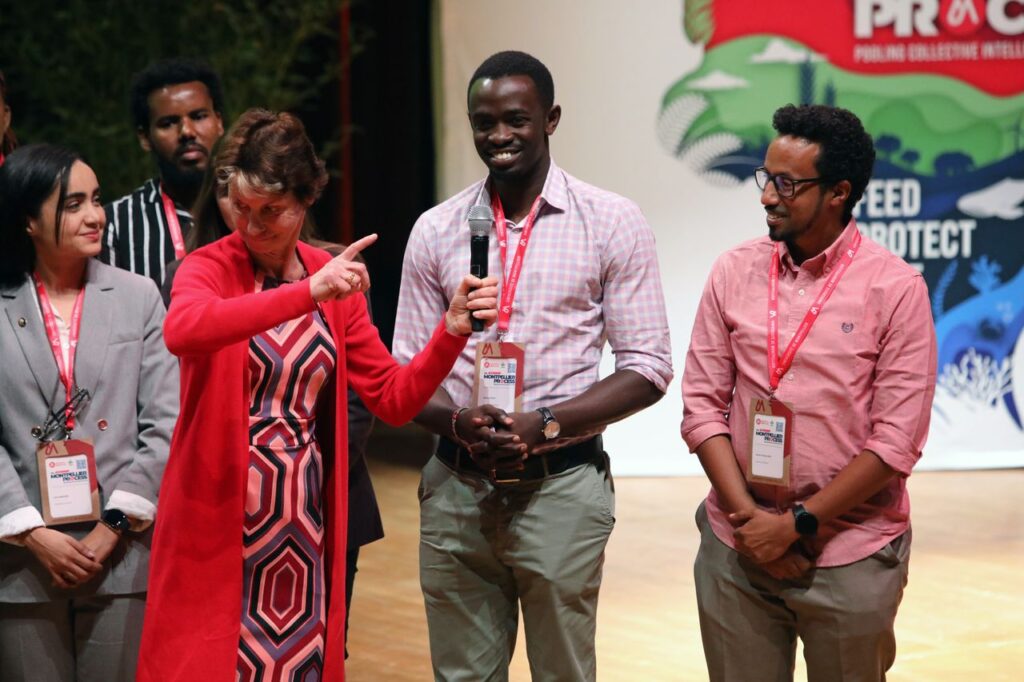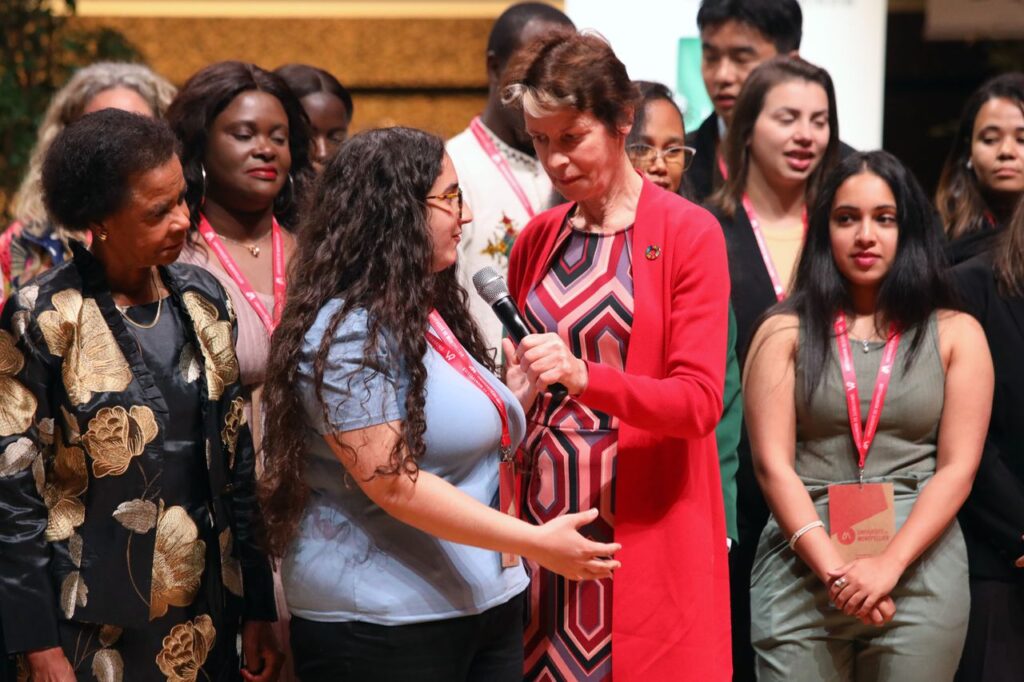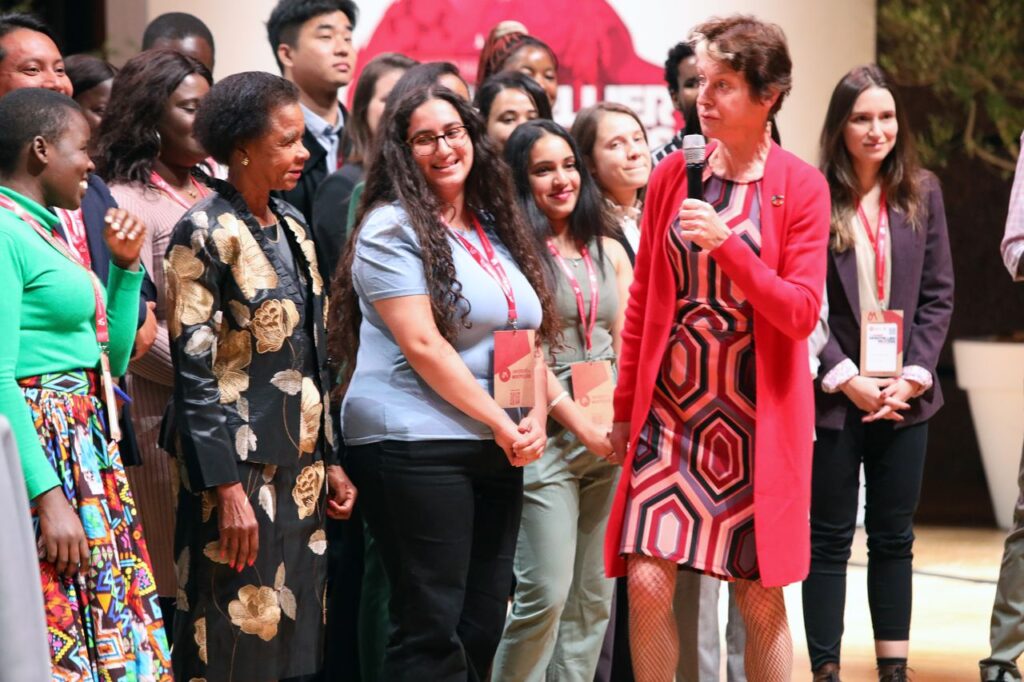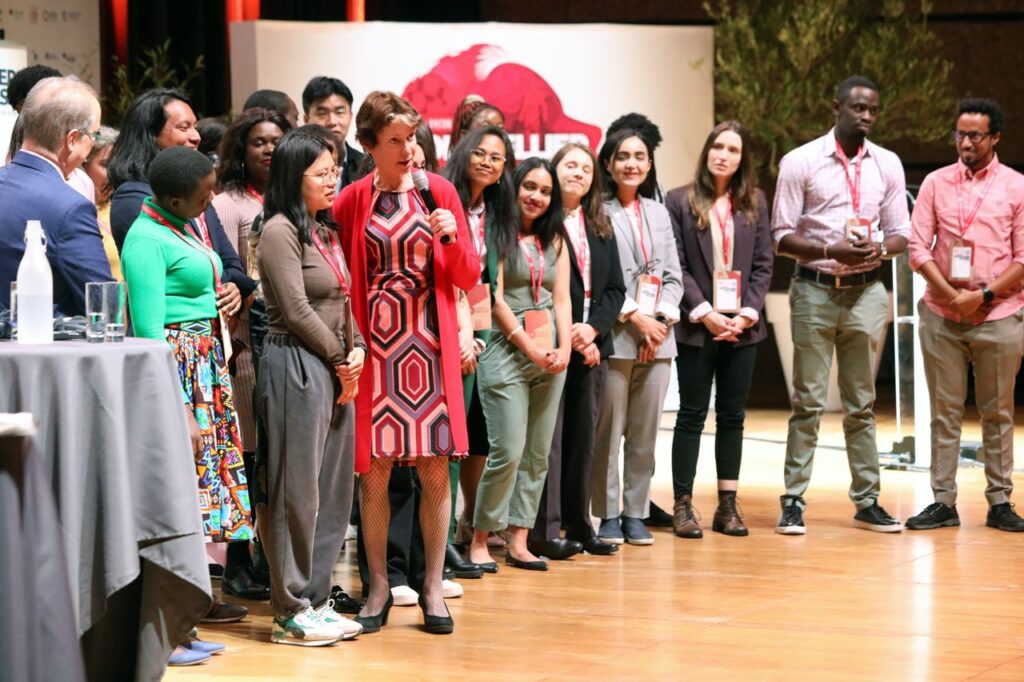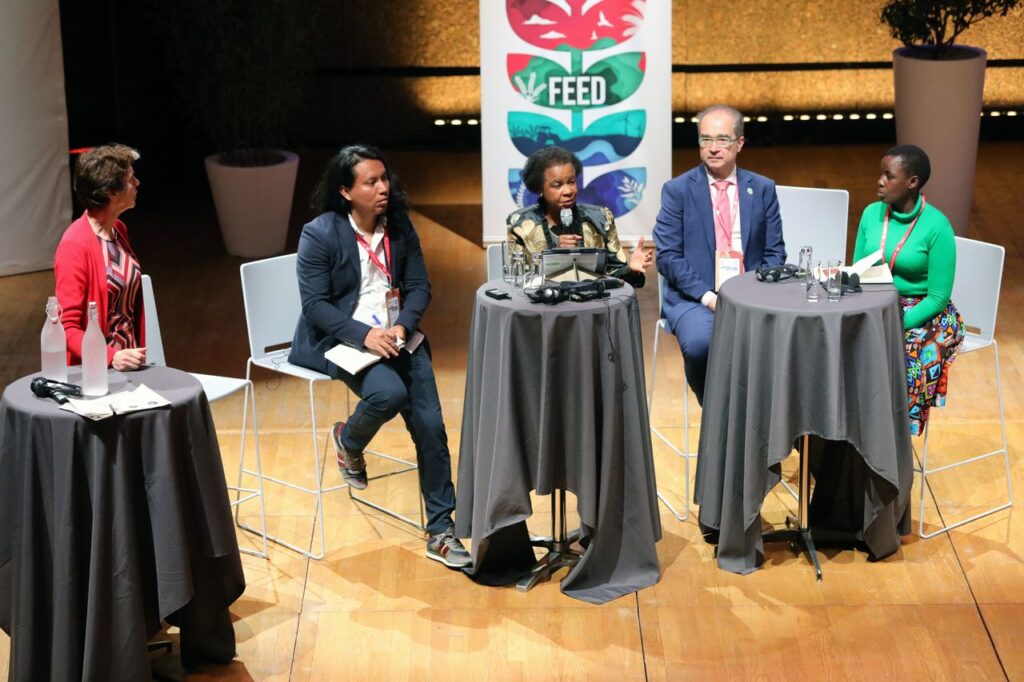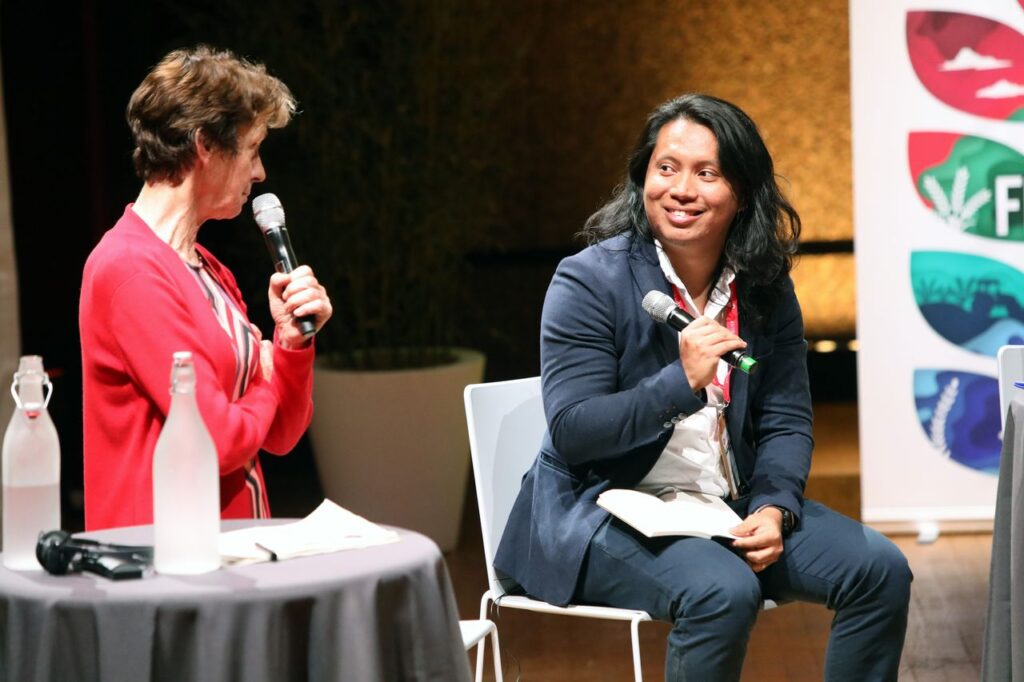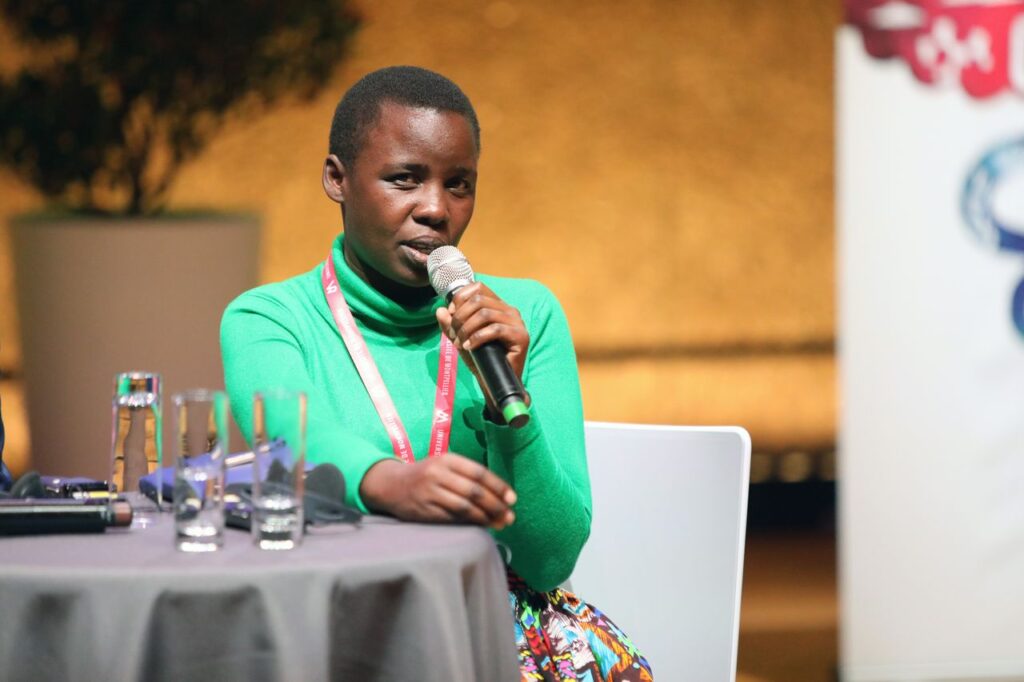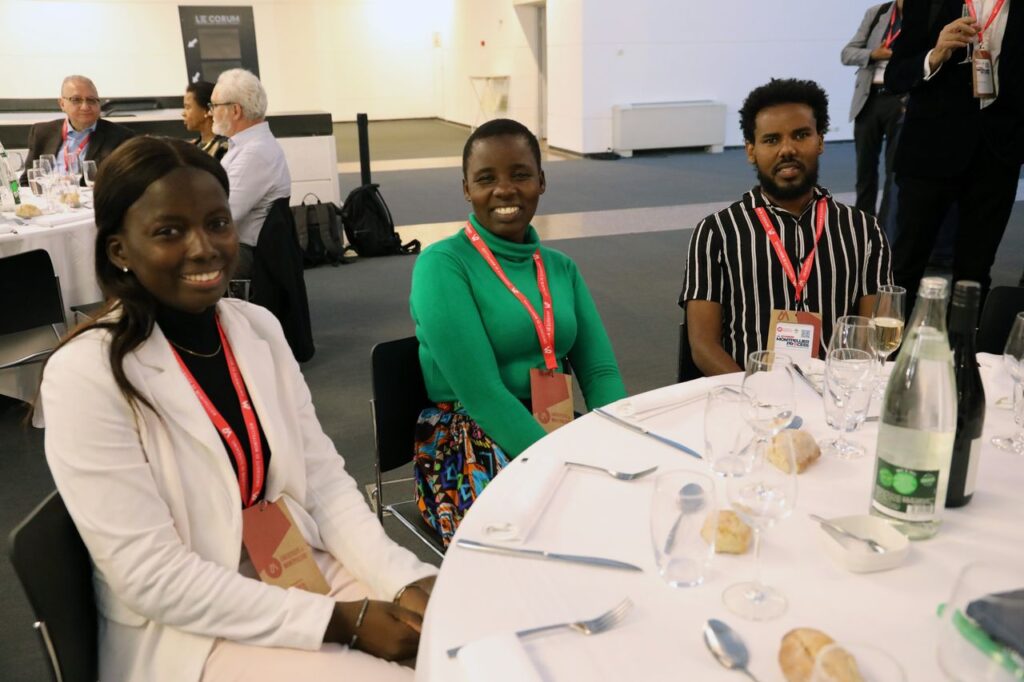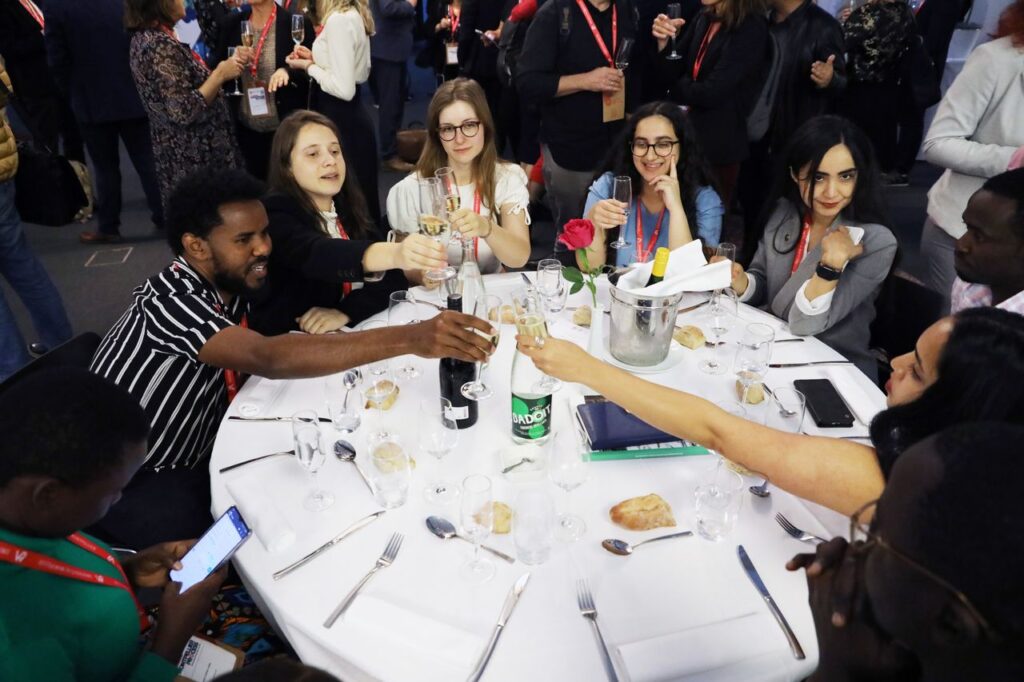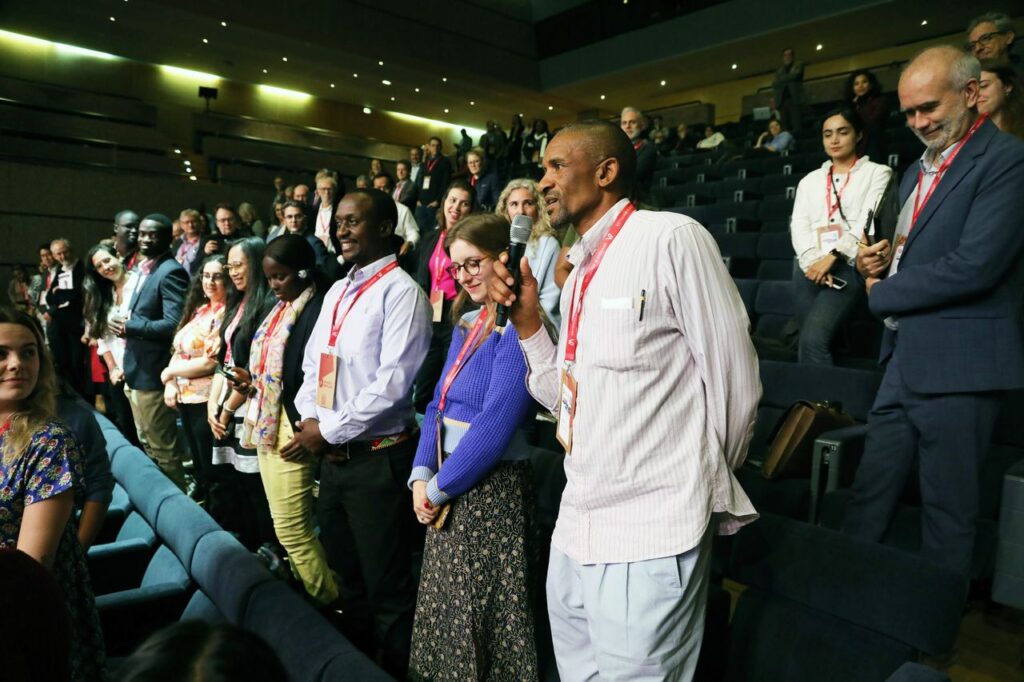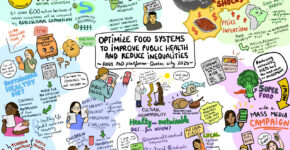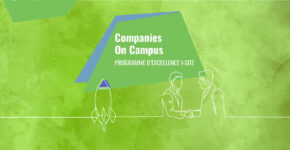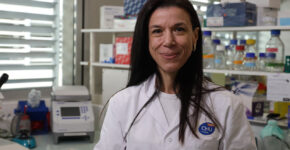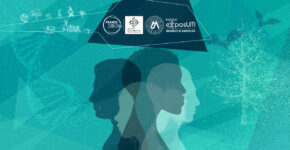Key World Initiative Nutrition - Food systems
The key international initiative Nutrition – Food Systems (FOODS) is being developed at the University as part of the UM2030 project, winner of the Call for Projects “Integration and Development of IdEx and ISITE” (IDeES). The initiative is the result of a bilateral collaboration between UM and the University of Pretoria (UP) and facilitates the transition to multilateral collaborations by bringing together strategic partners from both institutions. FOODS takes the form of a global collaborative platform for doctoral training and constitutes a virtual infrastructure for international cooperation.
Objectives
The platform aims to:
- Building a global community of future leaders in sustainable development science through the emergence of projects
- Increasing the impact of sustainable development science through interdisciplinary and transdisciplinary research and the development of expertise at the science-policy-society interface
- Facilitate longer-term research opportunities and career development prospects for young researchers
- Advancing open science and education practices through the development of new equitable global partnerships
- Promote the establishment of an international network of scientists working on the topics addressed
Program
The Nutrition – Food Systems doctoral platform aims to bring together a cohort of doctoral students at least once a year for field schools and/or training courses on topics chosen by the International Steering Committee (ISC). It aims to promote interdisciplinarity and interculturality through the diversity of the doctoral students it brings together.
Each cohort consists of two doctoral students per partner institution. These young researchers, who come from a variety of research fields and disciplines, are expected to complete at least two training courses offered by the Platform.
Doctoral students work in groups and exchange ideas in order to strengthen their ties and form an international network of future leaders in sustainable development science in the fields of nutrition and food systems.
The platform offers:
- Opportunities for doctoral students to publish documents and create communication materials
- A global exchange platform to facilitate discussion and document sharing
- International visibility of the research topic
- The opportunity to participate in international events
- A networking opportunity for young researchers
THE COHORTS
The Nutrition – Food Systems Doctoral Platform aims to bring together a cohort of doctoral students at least once a year for field schools and/or training courses on selected topics. Ultimately, it aims to build a global community of future leaders in sustainable development science through the emergence of international collaborative projects.
COHORT 2024-2025
- Ariane B. Barrette, Laval University, Quebec City, Canada. Expertise: Marine biology, Oceanography, Ecotoxicology, Local food
- Clara Colonna, Utrecht University, Netherlands. Expertise: Agricultural and food law and policy, Post-growth theories, Lobbying
- Alemu Bezie Debay, Wageningen University & Research, Netherlands. Expertise: Land use and land cover classification and change analysis (remote sensing and GIS), Research socio-ecological systems, serious games and participatory methods for co-designing land use scenarios.
- Marie Madeleine Adjigueleu Dieme, Cheikh Anta Diop University of Dakar, Senegal. Expertise: Food and human nutrition, Biological analyses, Field data collection and management, Use of stable isotopes in nutrition, Deficiency malnutrition
- Julia Finestone, University of California Davis, United States. Expertise: Infant nutrition, Gut health, Microbiology
- Bereket Tsehaye Haile, University of Pretoria, South Africa. Expertise: Project management; Environmental impact assessment (EIA), Remote sensing, Facilitation, Monitoring and evaluation
- Housna HASSANI, France and Comoros. Expertise: Global health, School food environment
- Saliou Diombo KEBE, Cheikh Anta Diop University of Dakar, Senegal. Expertise: Public health, Nutrition, Food assessment, Nutrition-related diseases, Physical activity, Food quality assessment, Prevention and management of acute malnutrition, Nutrition education and promotion, Community-based approaches to nutrition and health
- S’celo Ezra Madondo, University of the Western Cape, South Africa. Expertise: Social development, Food security: reducing food loss and waste (FLW) and capitalizing on FLW opportunities, Smallholder and youth development, Small and medium-sized enterprise (SME) and cooperative development.
- Ankitha Manohar, University of Leeds, England. Expertise: Marine science and conservation, Research , Land use planning, Remote sensing, Machine learning, Marine mariculture and aquaculture, Livelihood development, Food sovereignty, Marine governance
- Talitha Neesham-McTiernan, University of Arizona, United States. Expertise: Water-energy-food nexus, Agrivoltaics, Heat stress, Geospatial information systems, Dryland agriculture
- Tchiyiwe Thandiwe Moyo, University of York, England. Expertise: Human nutrition, Nutrition-Sensitive Agriculture (NSA), Climate-Smart Agriculture (CSA), Farming for Food Security (FFS), Extension models, Policy engagement and multisectoral coordination, Food security and resilience programs, Data analysis and modeling, Participatory action, Research community, Facilitation
- Greici Joana Parisoto, University of Sao Paolo, Brazil. Expertise: Agricultural and agri-food economics, Climate analysis and agricultural systems, Food security and market systems, Sustainable rural development, Quantitative and mixed methods in agriculture, Geospatial analysis and data analysis (Python, GIS), Project and research management, Agricultural innovation and sustainability
- Bruna Paviani, University of Sao Paolo, Brazil. Expertise: Food chemistry, Food processing, Bioactive compounds, Functional ingredients, LC-MS
- Fadhila Bacha, Institut Agro Montpellier, France. Expertise: Collective certification, Value chain governance, Territorial development, Local food systems, Data science, Sustainability, Agricultural economics
- Thais Gabriela Veras Gama, University of Sao Paulo, Brazil. Expertise: Agricultural economics, Climate change, Productivity and efficiency analysis, Climate change adaptation and migration
- Ana María Quiroga Arcila, Laval University, Quebec City, Canada. Expertise: Beekeeping, Stingless bees, Bumblebees, Diversity, Landscape analysis, Blueberry pollination, Conservation, Soil health, Coffee plantations, Mushroom production, Agroecology
COHORT 2025-2026
- Disha Bansal, Laval University, Quebec City, Canada. Expertise: Urban renewal and protest, Redevelopment of traditional retail markets, Access to public spaces and social justice, Decolonial research practices.
- Jamie Bride, University of Montpellier, France. Expertise: Omega-3, Click chemistry, Confocal imaging, Cytometry, Inflammation, Arrhythmias
- Minghao (Marco) Ning, Dalian University of Science and Technology, China. Expertise: Consumer behavior in agricultural economics, Behavioral preferences in food and agriculture, Sustainable agricultural practices
- Caroline N’Gomange Maro, University of Arizona, United States. Expertise: Horticulture, Plant Breeding, Plant Microbiology, Microbiology
- Virginie Drolet-Labelle, Laval University, Quebec City, Canada. Expertise: Nutrition, Public Health, Sustainability, Sugary Drinks
- Julieth Uriza, Utrecht University, Netherlands. Expertise: Nutrition, Food Science, Public Policy, Epidemiology, Regulatory Affairs
- Meike Siemonsma, Wageningen University, Netherlands. Expertise: Nutrition, Public Health, Epidemiology, Food Research , Advanced Data Analysis
- Guilherme Portugal, University of Sao Paulo, Brazil. Expertise: Applied economics, Food externalities, Microeconomic modeling, Sustainable food markets, Mobility theories, Public policy
- Byambabayar Ganbold (Bibby), Wageningen University, Netherlands. Expertise: Remote sensing, Soil, Physical geography, Climate change
- Housna Hassani. Expertise: School meals, Environment
- Agung Jauhari, Utrecht University, Netherlands. Expertise: GIS, Cartography, Spatial, Analysis
- Noxolo Kabane, University of the Western Cape, South Africa. Expertise: Research policy development in urban development, Policies and programs, Planning in response to child malnutrition in the Eastern Cape province, Project management, Strategy development
- Sikhumbule Kagiso Joni, University of the Western Cape, South Africa. Expertise: Food environment , Indigenous foods
- Arshpreet Kaur Khattra, Michigan State University, United States. Expertise: Food microbiology and food safety, Predictive microbial modeling and risk assessment, AI and machine learning for environmental data analysis, Low-moisture foods (LMF) and dry sanitation technologies
- Jing Li, Chinese Academy of Agricultural Sciences, China. Expertise: Plant protection, Insect ecology, Ecological chemistry, Integrated pest management (IPM)
- Fiorella Loli, University of California Davis, United States. Expertise: Food systems, Livelihoods, Andean agriculture
- Kamilia Mahloul, Sorbonne University, France. Expertise : Molecular and cellular biology, nanobiotechnology, histology, bioinformatics and data analysis, scientific communication and critical thinking.
- Mamphasha Expertise Phina Mdaka, University of Pretoria, South Africa. Expertise: Sustainable laying hen farming practices in South Africa, Integrating poultry farming with Sustainable Development Goals (SDGs), Role of egg production in public health, food security, and chronic disease prevention.
- Zheng Miao, University of California, Davis, United States. Aquaculture, Agriculture, Machine Learning, Computer Vision
- Leon Noble, University of Leeks, England. Expertise: Aquaculture, Aquaculture, Agriculture, Machine learning, Computer vision
- Vincent Ogweno, Michigan State University, United States. Expertise: Geo-AI, remote sensing, agricultural climatology, political ecology, agricultural land mapping, frost risk detection, environmental governance, demographic studies.
- Laura Parro Lorente, Autonomous University of Madrid, Spain. Expertise: Nutrition, Food Science, Analytical Chemistry, Chromatographic Techniques, Cell Cultures, Nutritional Approach in Patients, Data and Questionnaire Management
- Krishna Poudel, Laval University, Quebec City, Canada. Expertise: Soil health and quality, Carbon and nitrogen cycles, Food and nutritional quality, Organic and mineral, Fertilization, Greenhouse gas reduction, Crop drought resistance, Stress
- Ms. Mpho Ratshilnindela, University of Pretoria, South Africa. Expertise: Veterinary parasitology and infectious diseases, Molecular techniques: DNA extraction, PCR, sequencing (NGS and Sanger sequencing), Sequence analysis, Epidemiological investigation and statistical data analysis, Risk factor assessment using structured questionnaires
- Andrea Rizo Barroso, University of Barcelona, Spain. Expertise: Urban food environments, Food security, Gender inequalities, Right to food
- Noah Schlager, School of Geography, University of Arizona, United States. Expertise: Indigenous food systems, sovereignty, agroecology and agrobiodiversity, history of conservation science, farmer support networks, indigenous seeds, conservation.
- Bruno Lopes Silva, University of Sao Paulo, Brazil. Expertise: Applied Economics, Business, Economic Development, Policy, Food and Nutrition Security, Food Systems.
- Sarah E Veale, University of York, England. Expertise: Social inequalities, Maternal and child nutrition, Sustainable food systems, Plant-based diets, Research and co-design, Food insecurity and ultra-processed foods, Climate and health, Public engagement and science, Communication
- Laura Wilmot, Laval University, Quebec City, Canada. Expertise: Food law (food sovereignty, food security, and food self-sufficiency), Indigenous law (self-determination), International law (implementation of the United Nations Declaration on the Rights of Indigenous Peoples)
Testimonials
Hear how the platform made a difference in the journey of Ana Maria Quiroga-Arcila, a doctoral student in plant biology at ULaval, Quebec City, and participant in the activities of the first cohort.
The actors
The Nutrition – Food Systems initiative was developed in collaboration with the University of Pretoria in May 2022. On the UM side, the initiative is scientifically led by Karen Lambert-Cordillac, University Professor at the Faculty of Pharmacy of the University of Montpellier. On the University of Pretoria side, the lead is Frans Swanepoel from the Future Africa Center. The initiative takes the form of a global collaborative doctoral training platform bringing together doctoral students from strategic partners of both institutions.
17 Partners
Europe
- University of Montpellier (UM)
- University of Barcelona (UB)
- University of Leeds
- University of York (UY)
- University of Utrecht (UU)
- Wageningen University and Research (WUR)
Asia
- Graduate School of the Chinese Academy of Agricultural Sciences (GSCAAS)
- China Agricultural University (CAU)
North America
- Michigan State University (MSU)
- Laval University of Quebec
- University of Arizona
- University of California, Davis (UC Davis)
South America
- University of São Paulo (USP)
Africa
- Cheikh Anta Diop University of Dakar (UCAD)
- University of Nairobi (UONBI)
- University of Pretoria (UP)
- University of the Western Cape (UWC)
Governance
The Platform is managed by the International Steering Committee (ISC), which includes one representative from each member institution.
The CPI is co-chaired by a representative from the South and a representative from the North. Currently, Frans Swanepoel (UP) and Margreet de Lange (Utrecht University) hold these positions.
The CPI decides and oversees the implementation of the Platform's strategic guidelines and overall activities.
It meets virtually at least once a year and in person at least once every 18 months.
The Platform is managed at UM by Nathalie Modjeska, with the assistance of Elsa Denis, within the International Support and Attractiveness Service of the Structuring Programs Department.
Back in pictures
Cohort November 2, 2025 – first doctoral program at Laval University, Canada
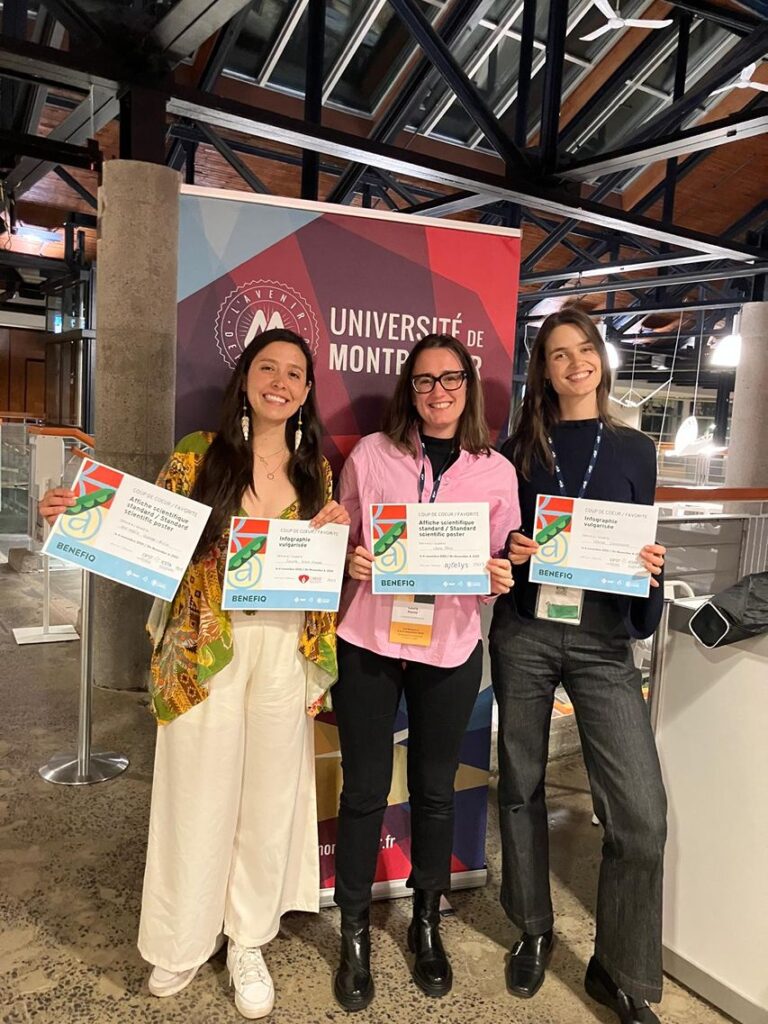
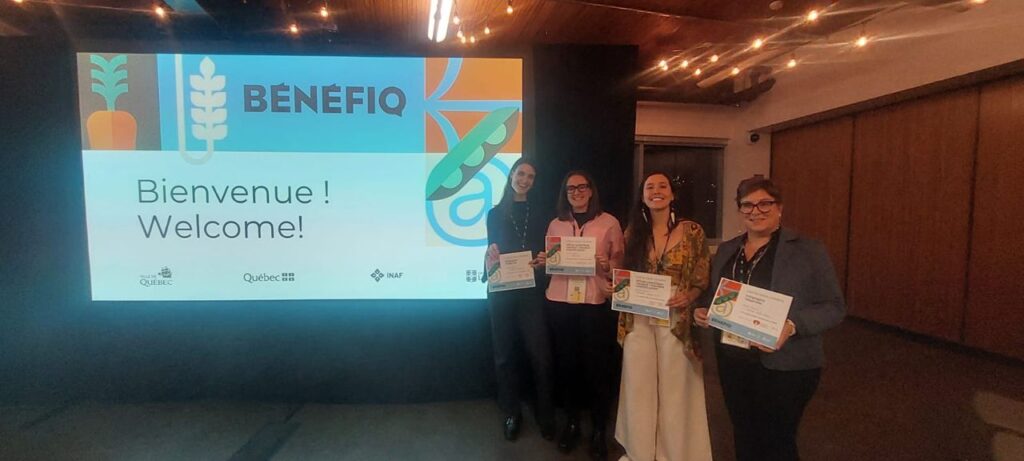
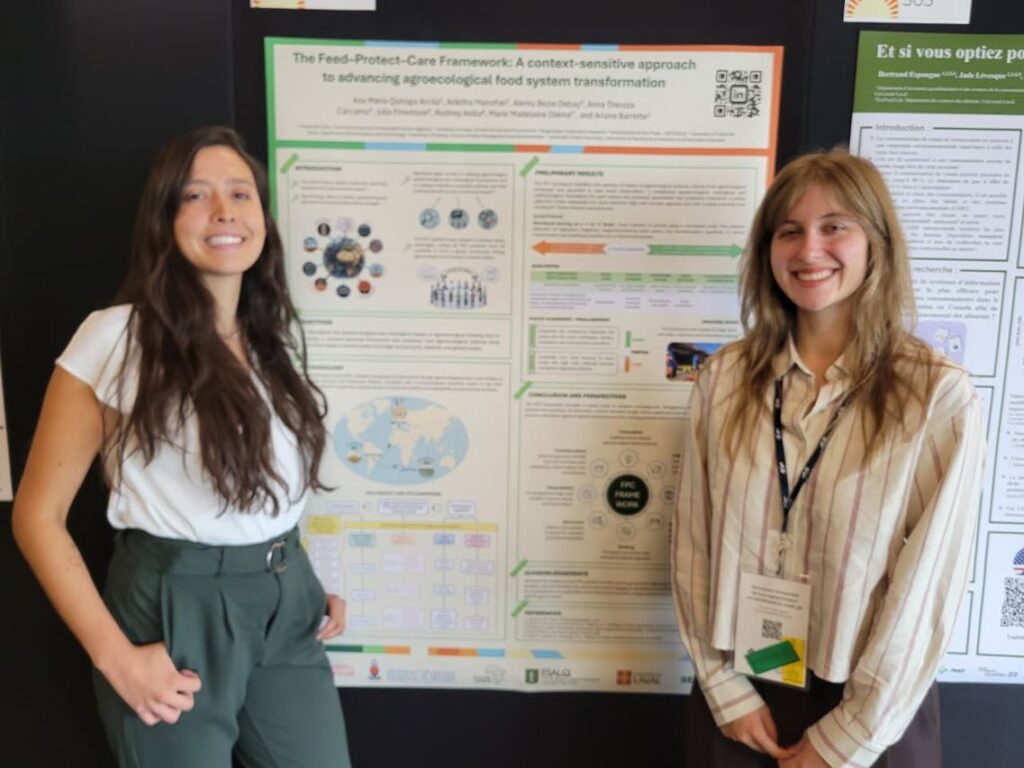
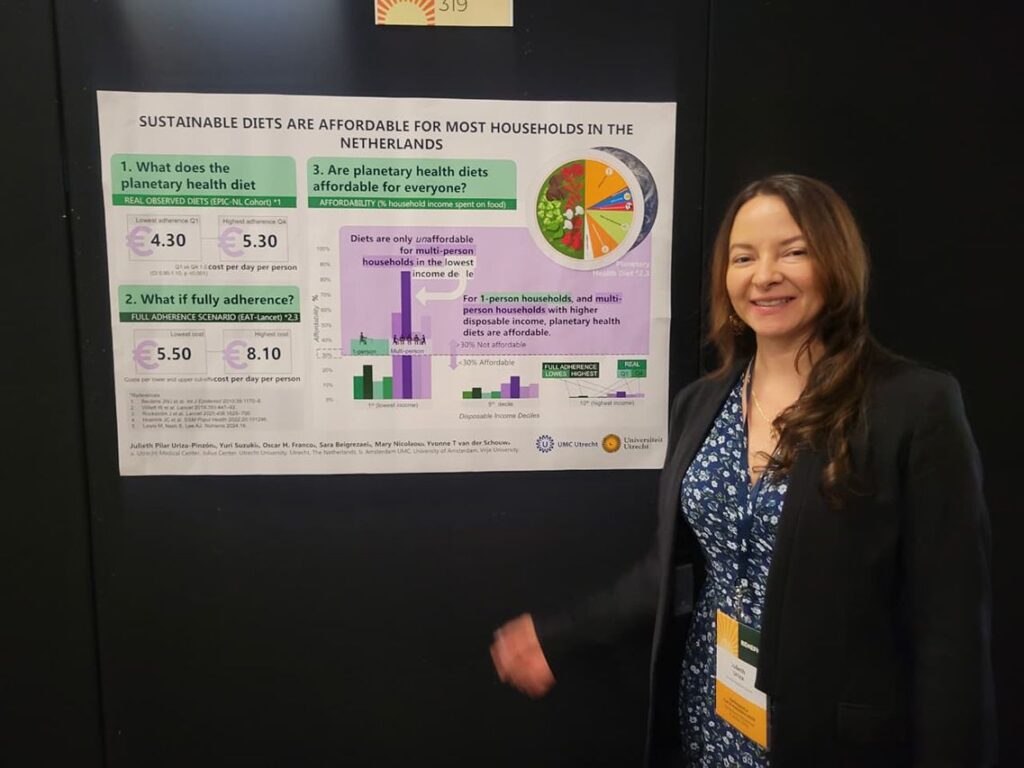
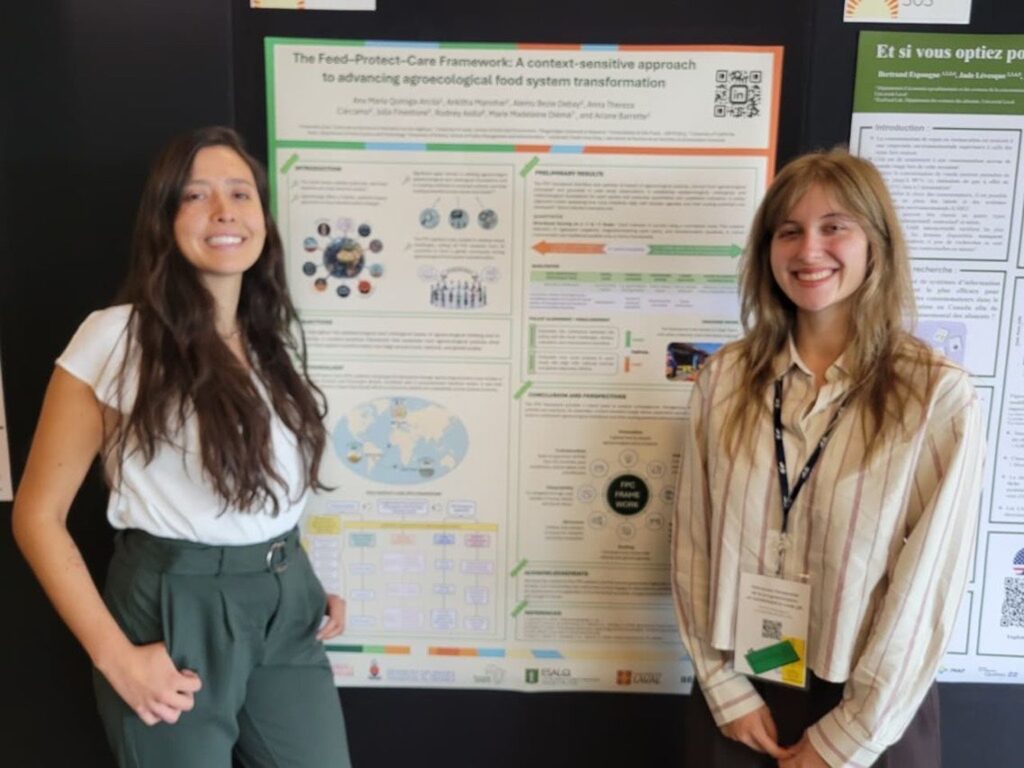
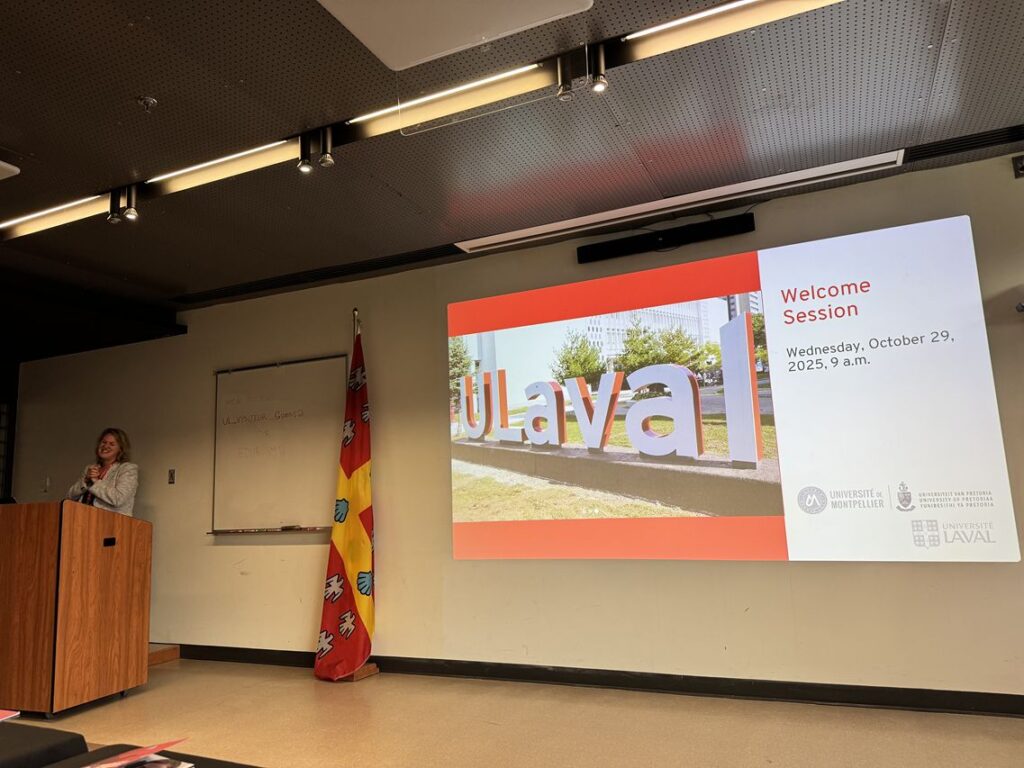
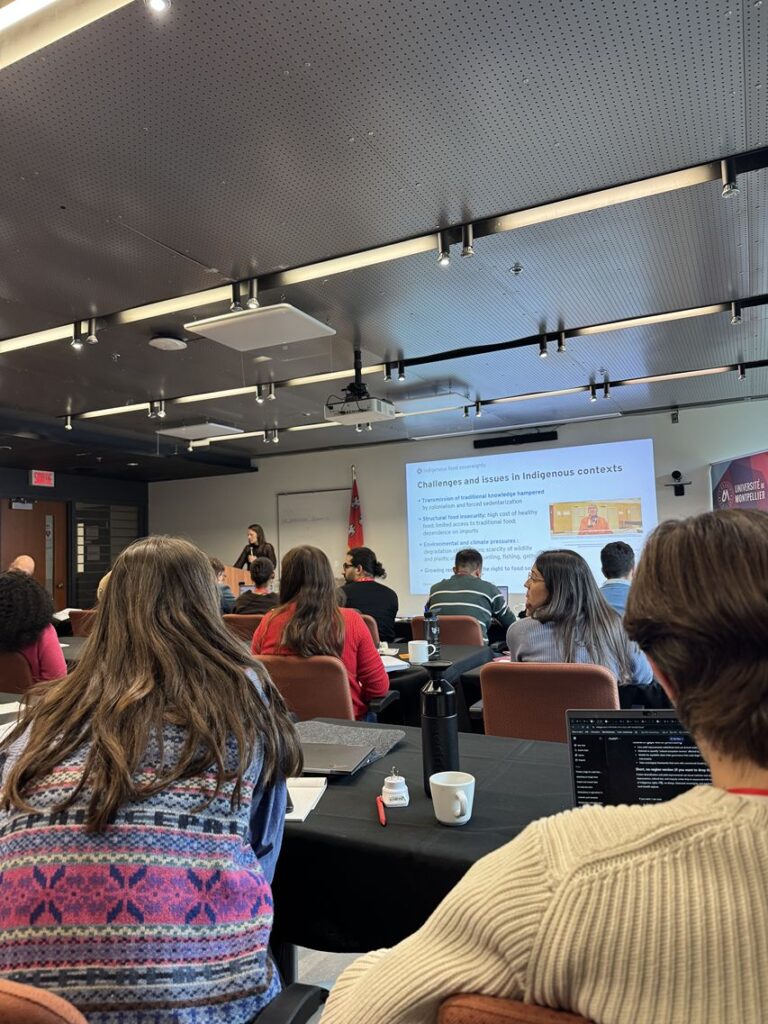
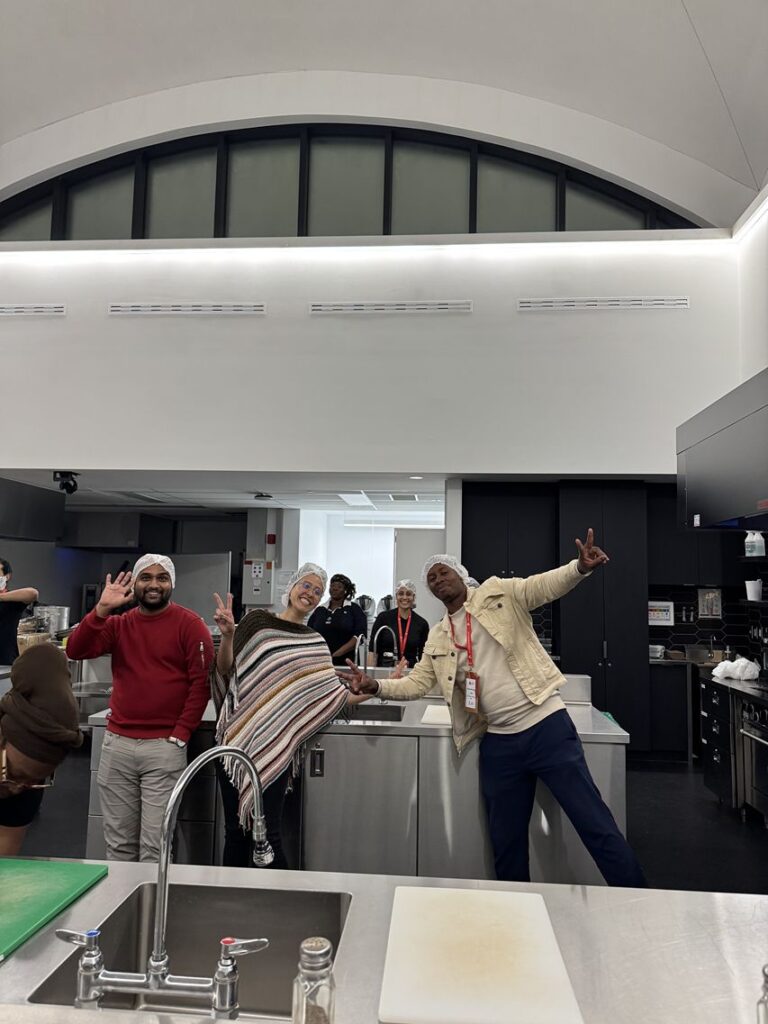
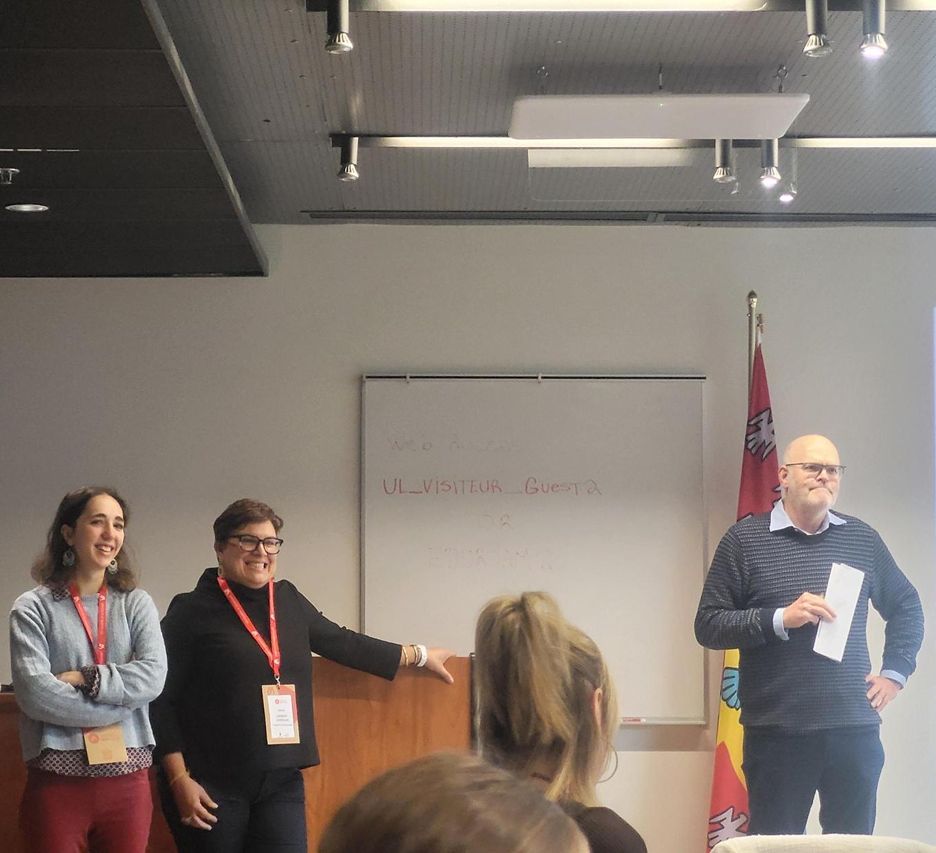
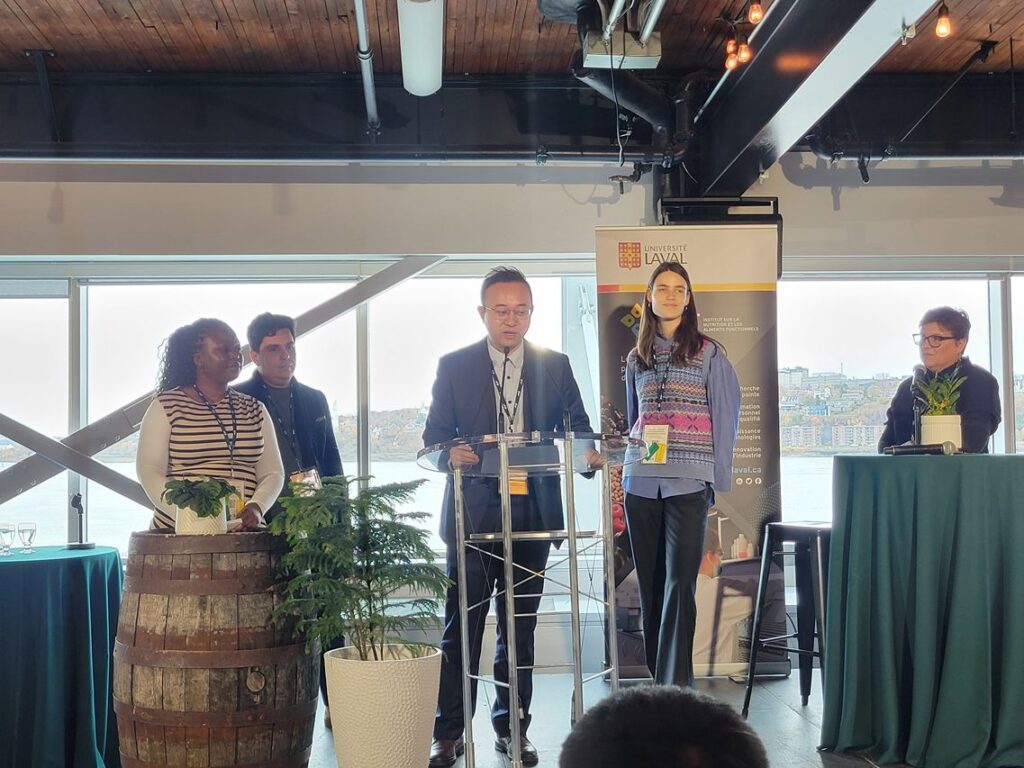
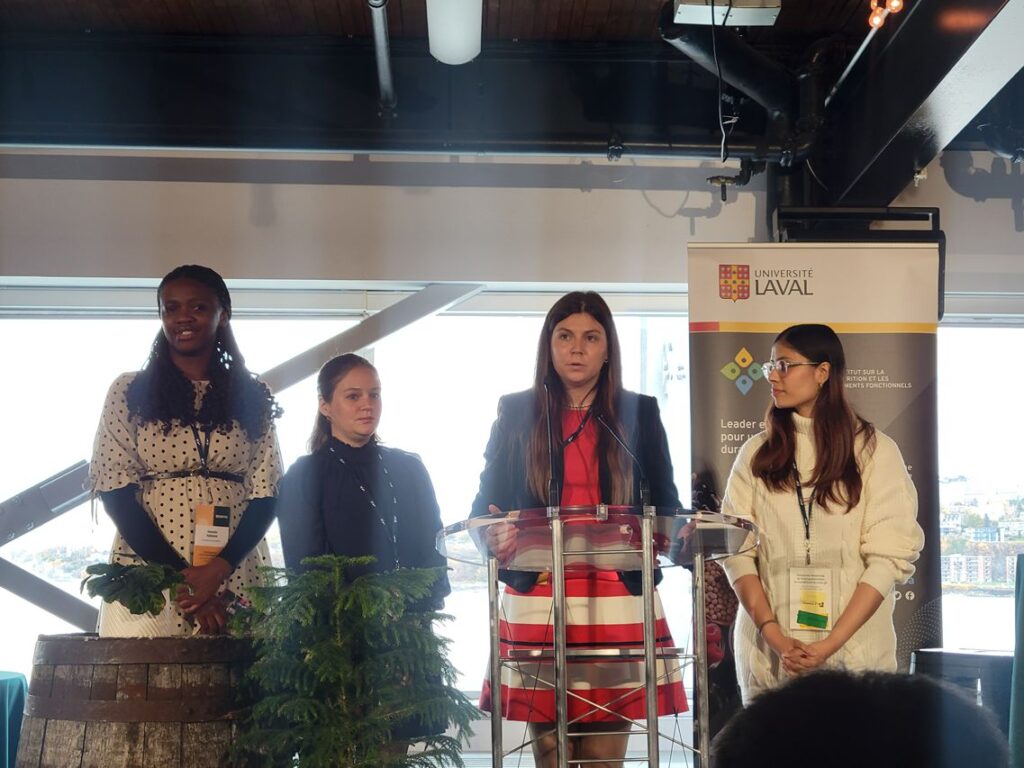
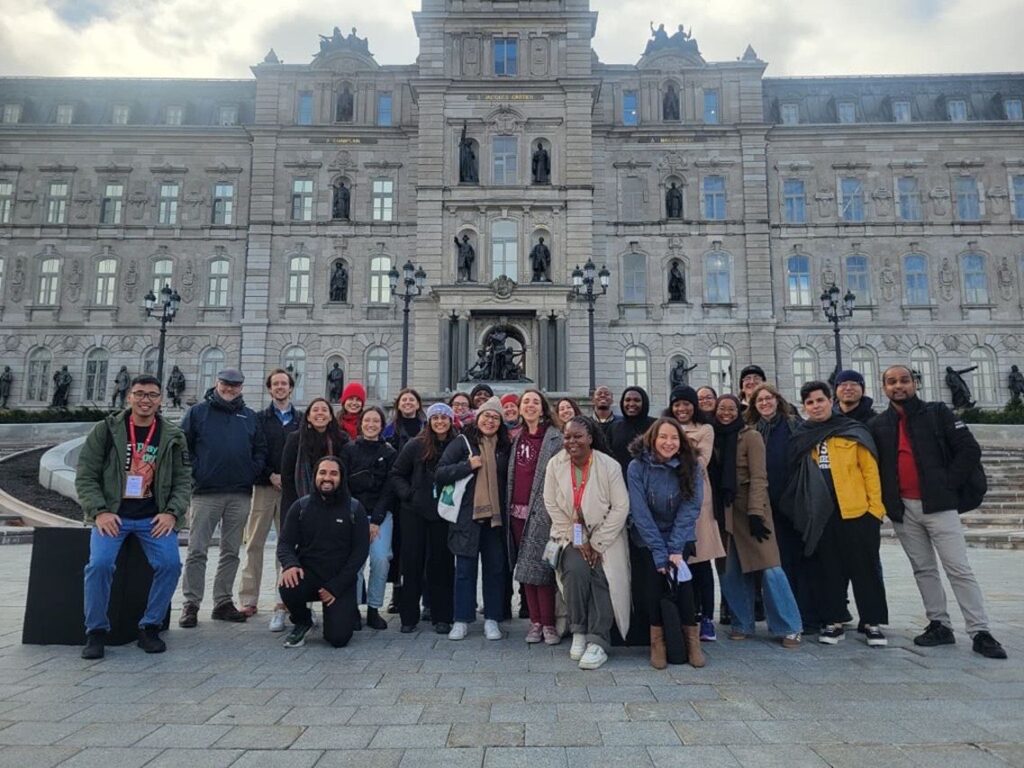
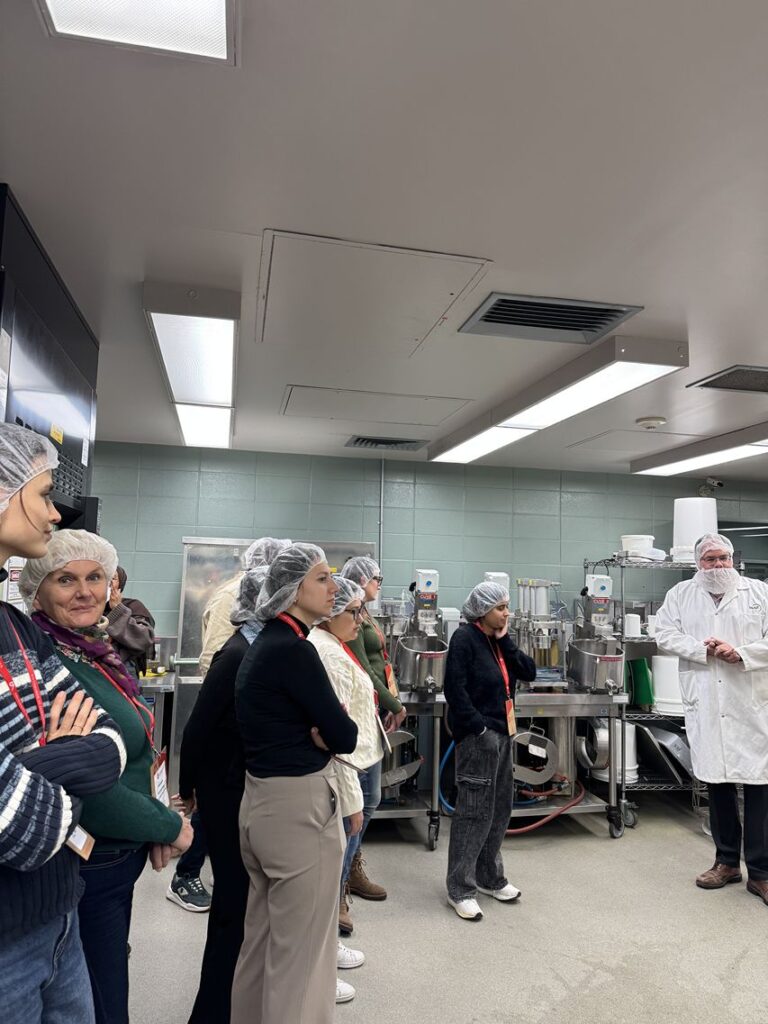
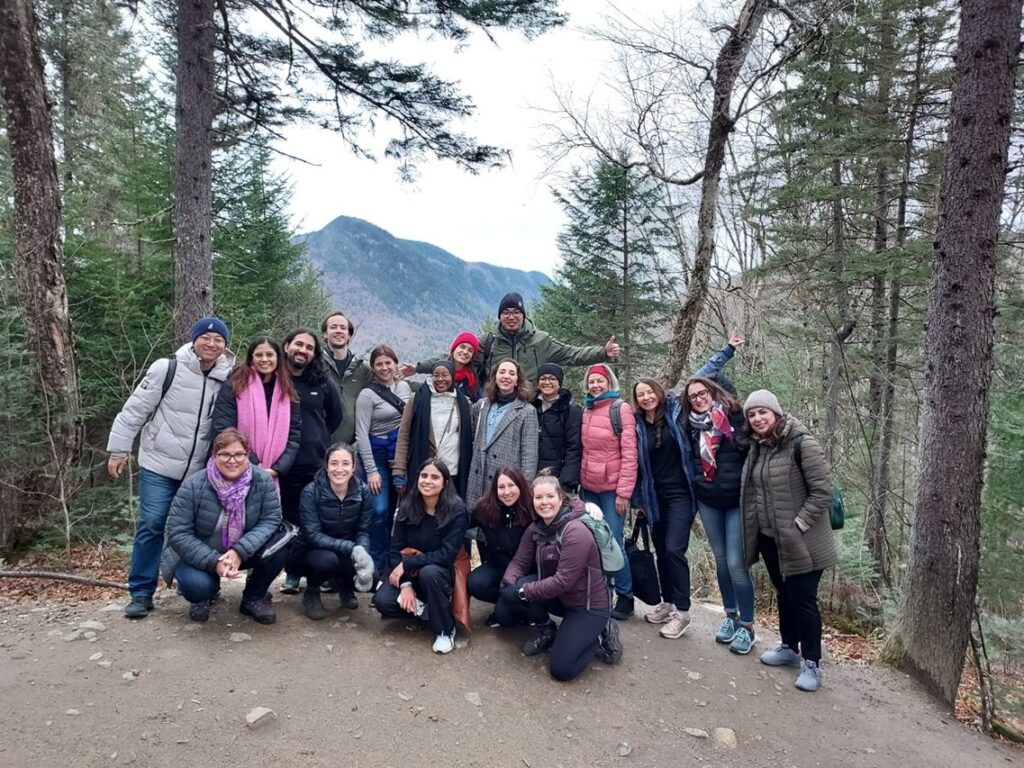

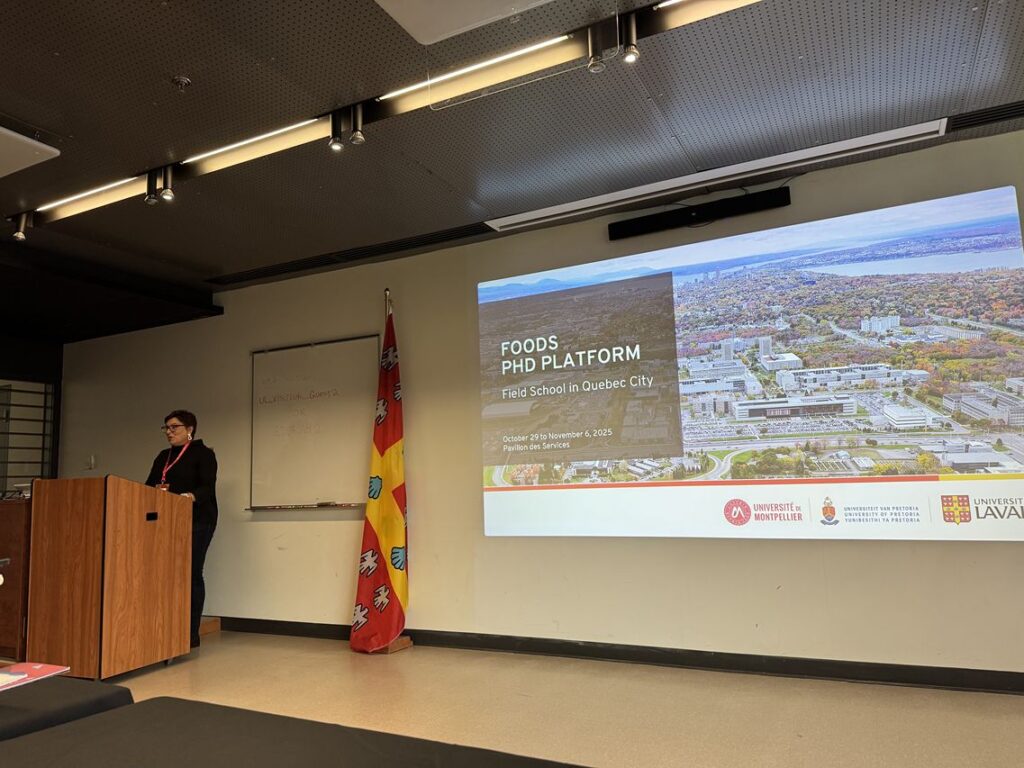
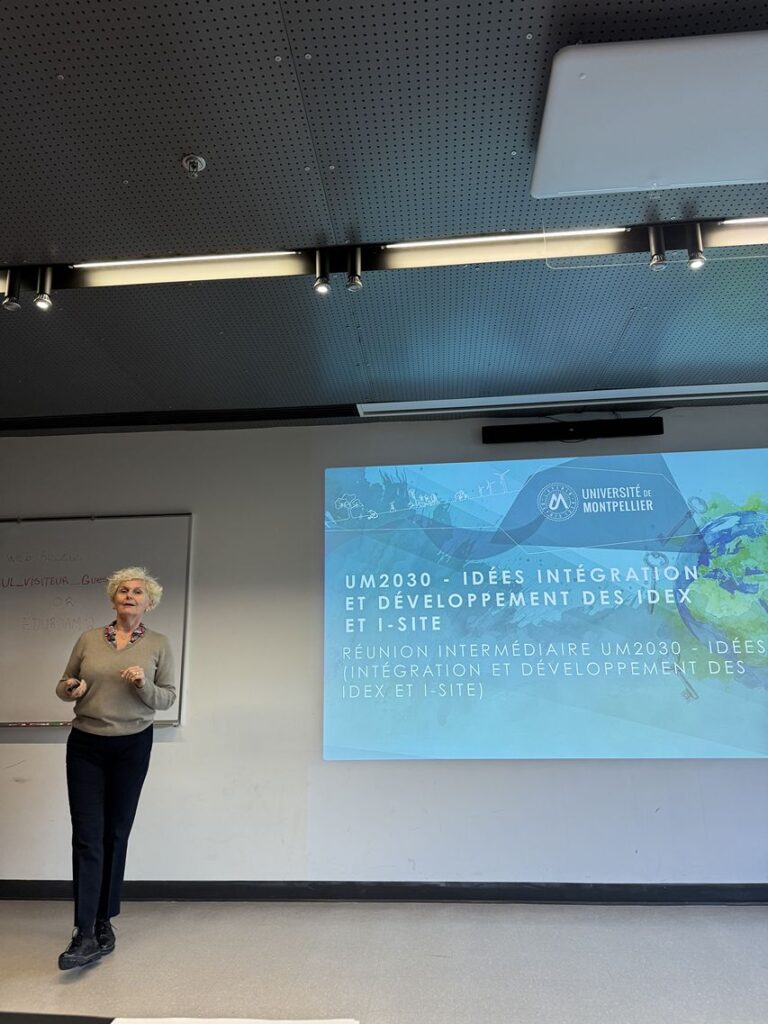
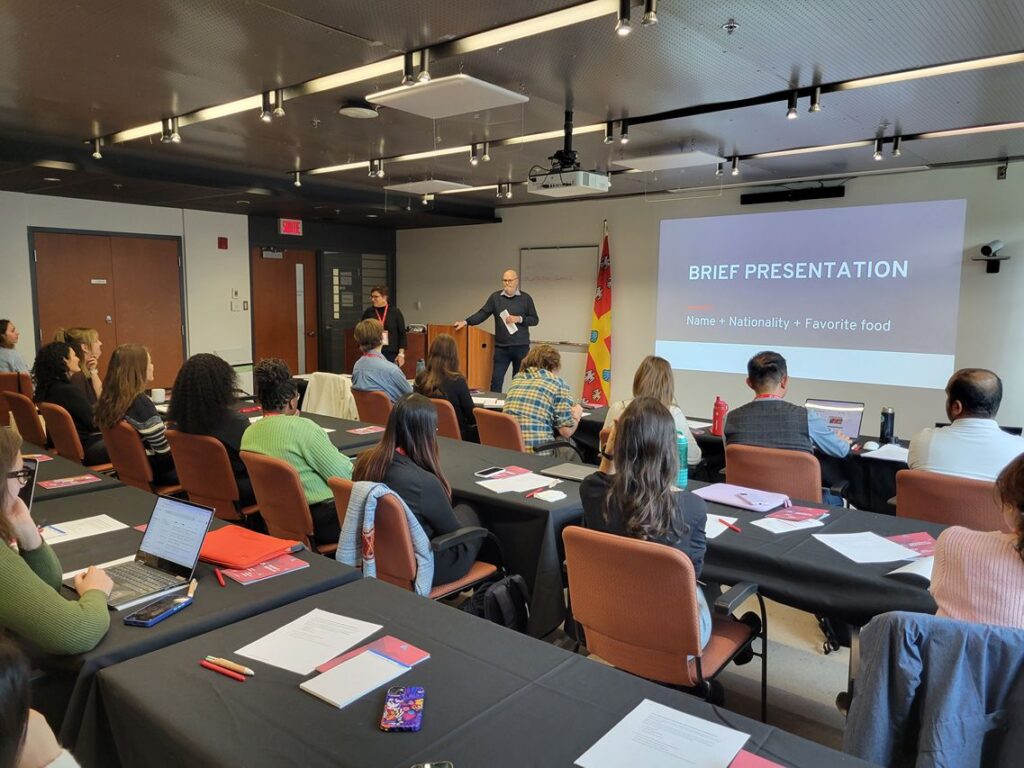
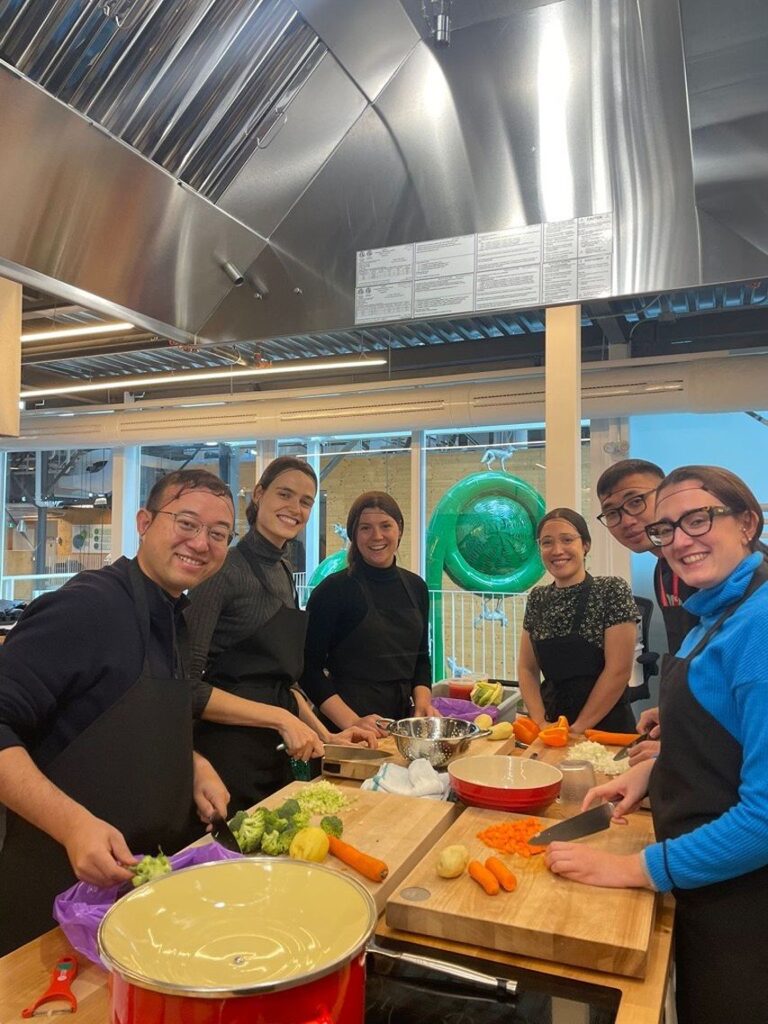
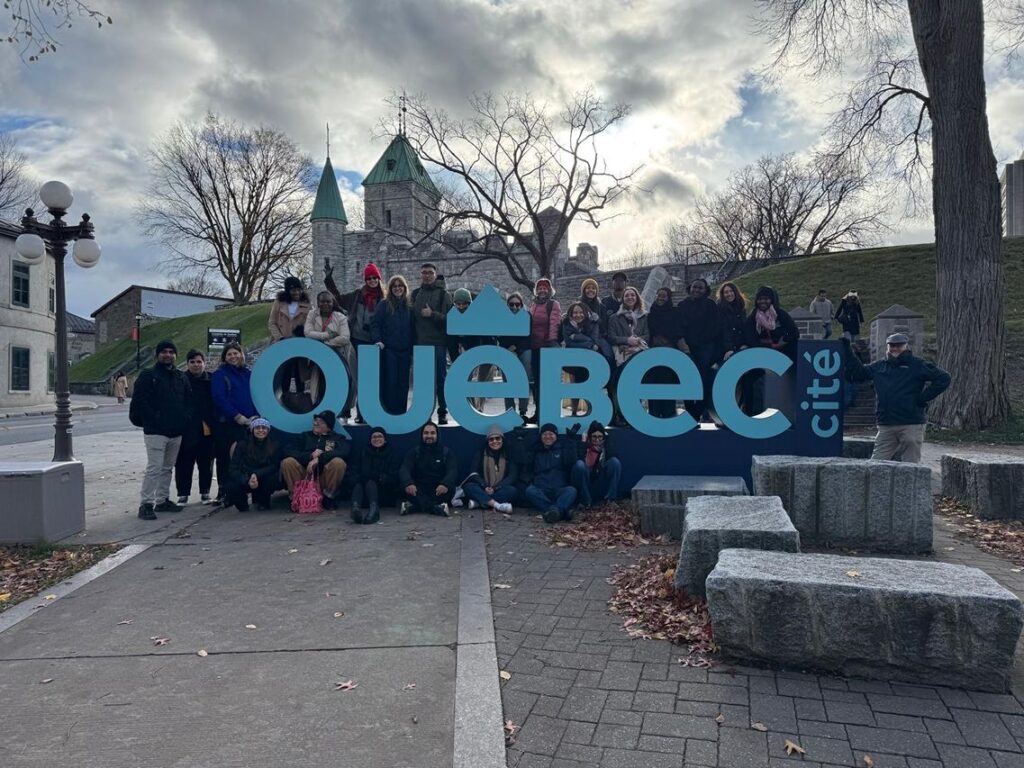
Cohort September 1, 2025 – 3rd doctoral school in Cape Town, South Africa (UP)
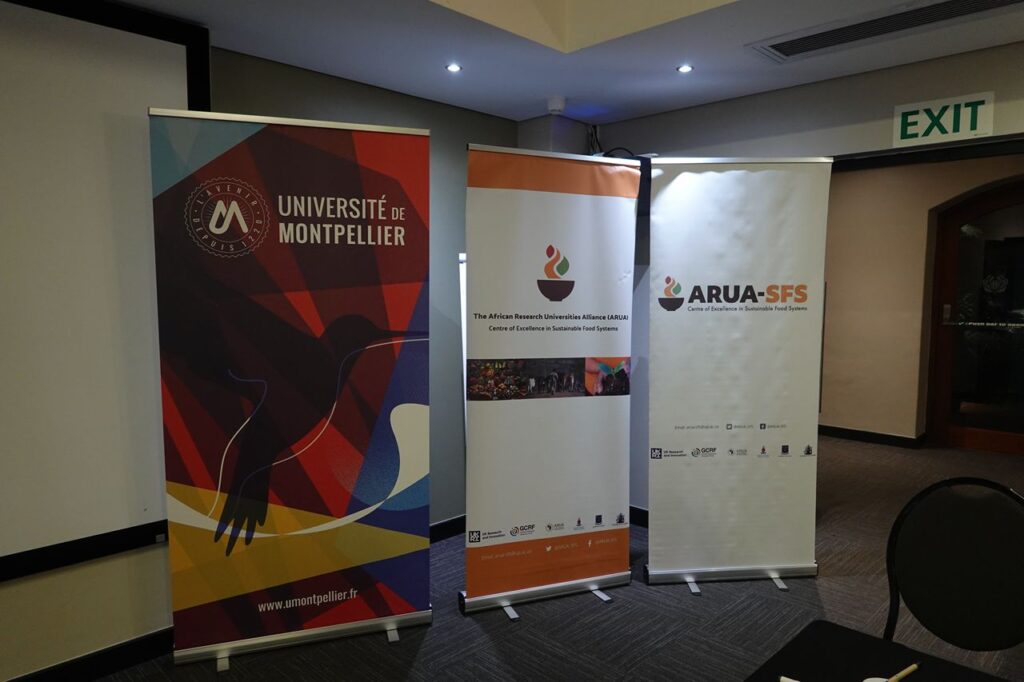
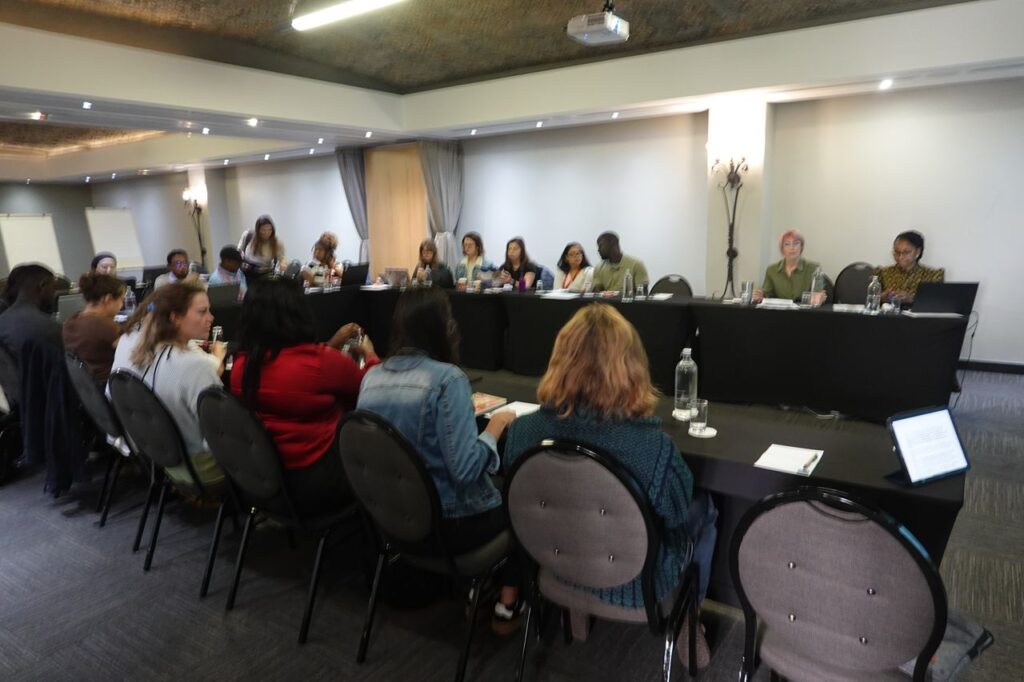
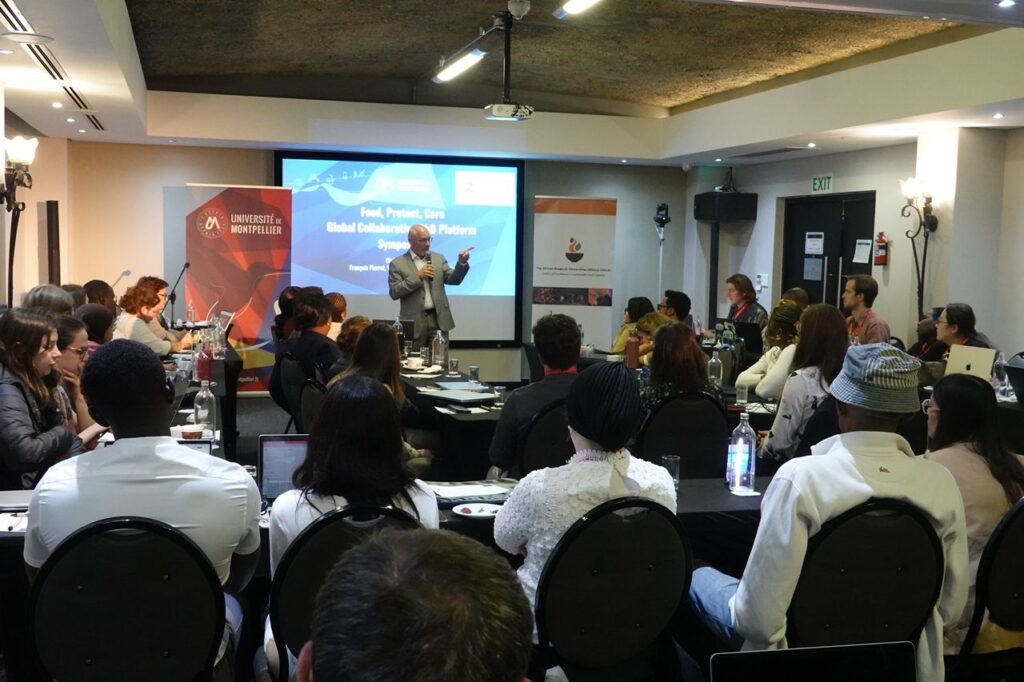
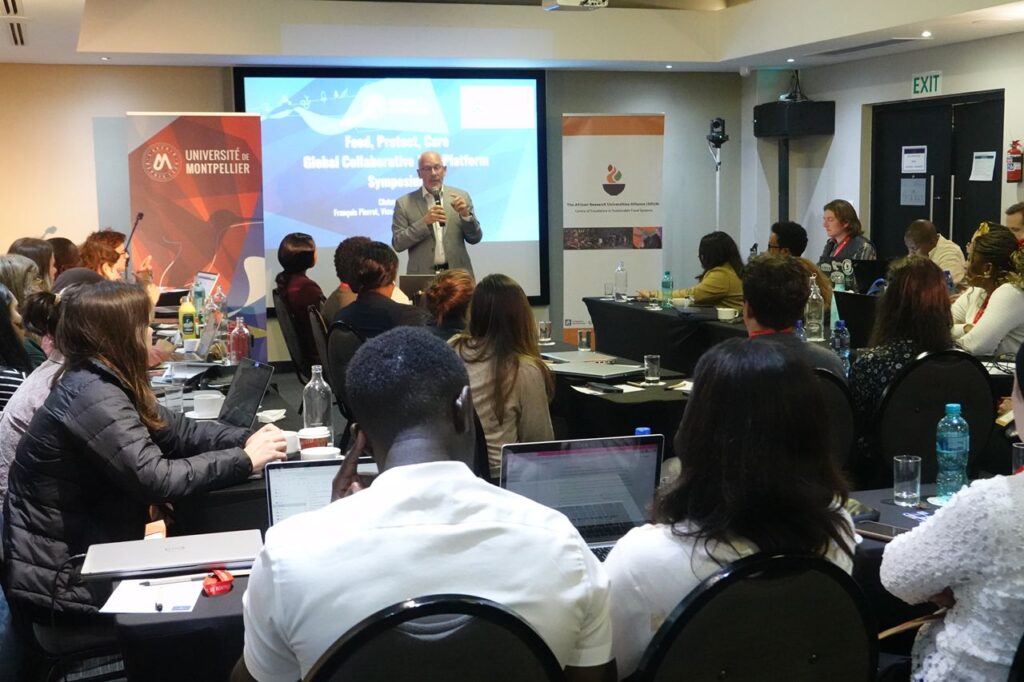
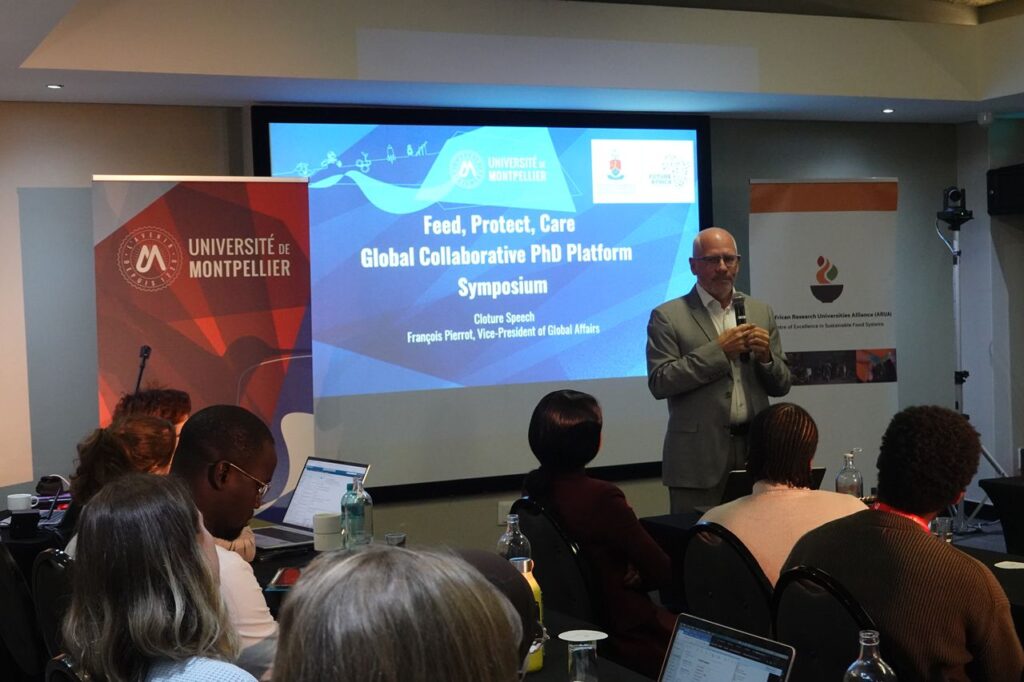
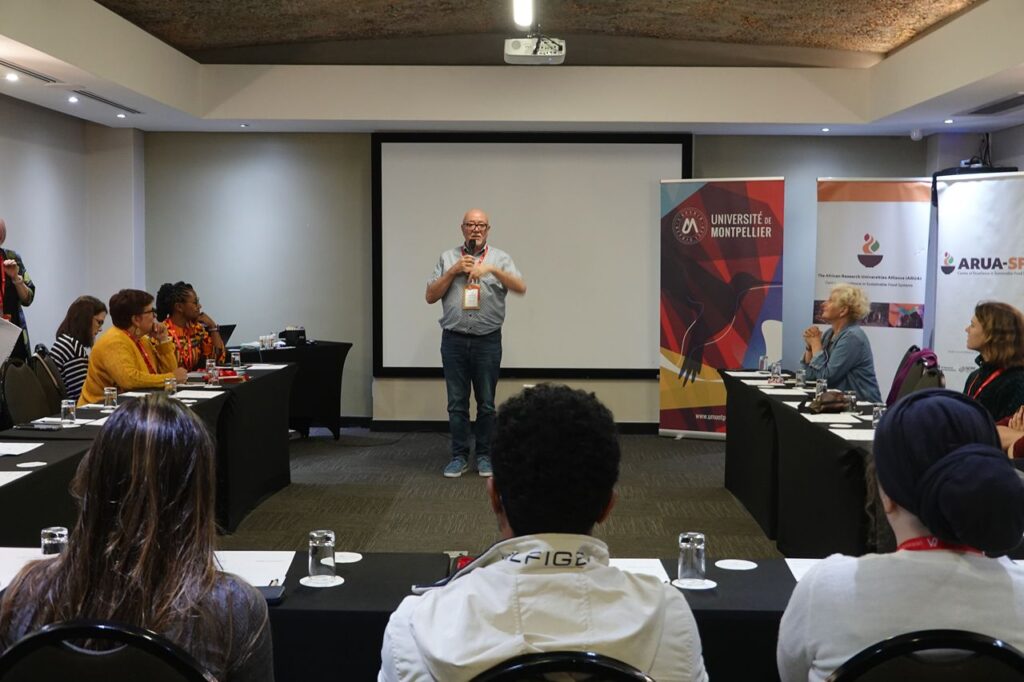
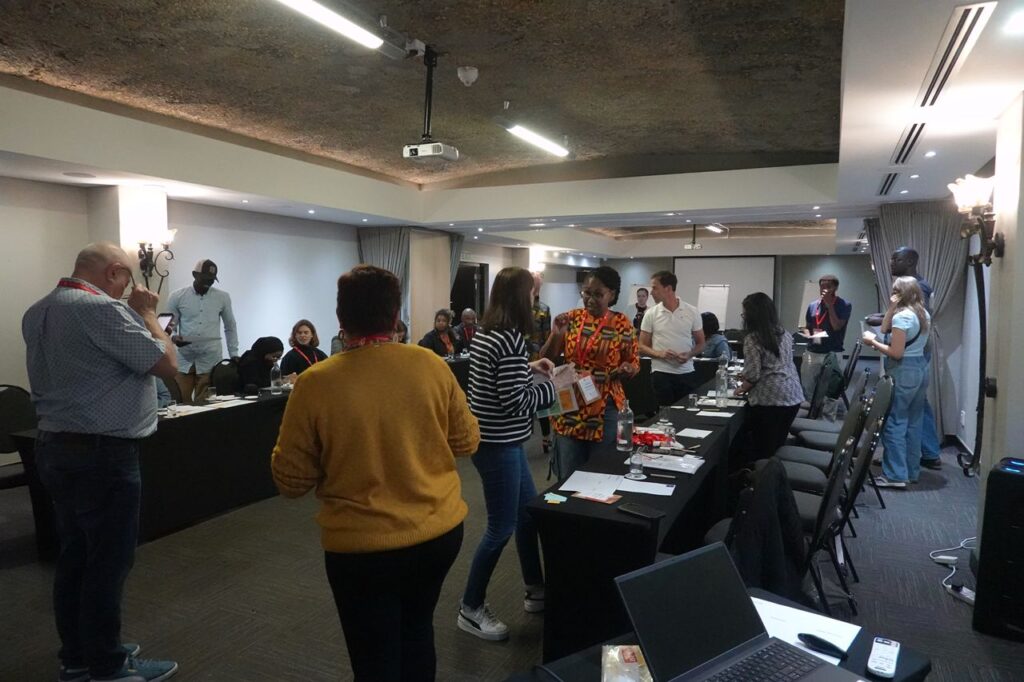
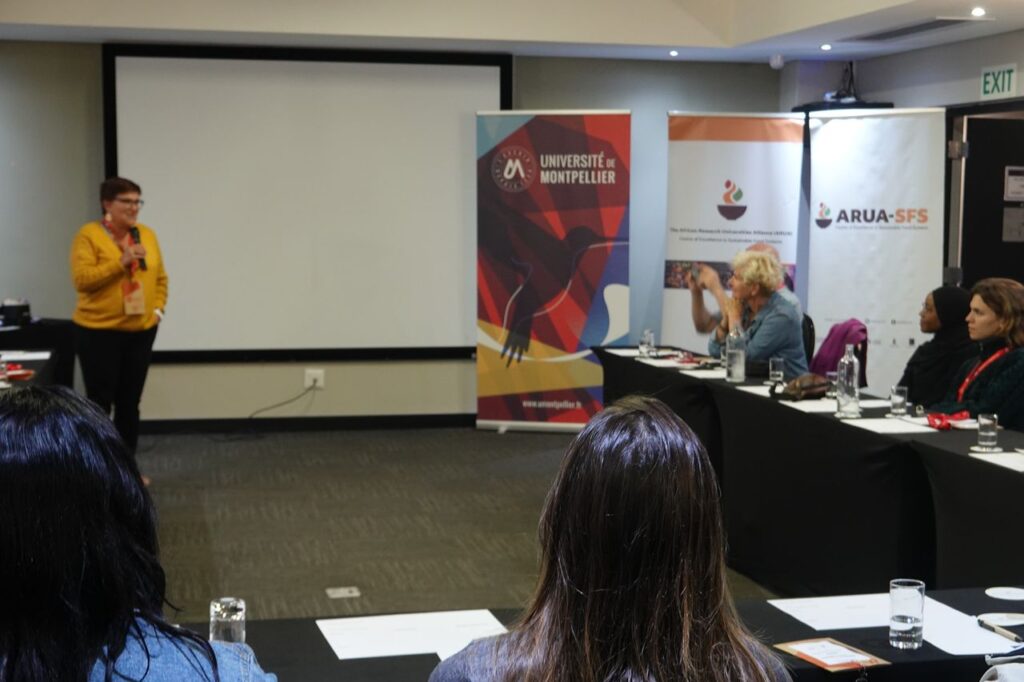
Cohort November 1, 2024 – 2nd doctoral school in Piracicaba, Brazil (USP)



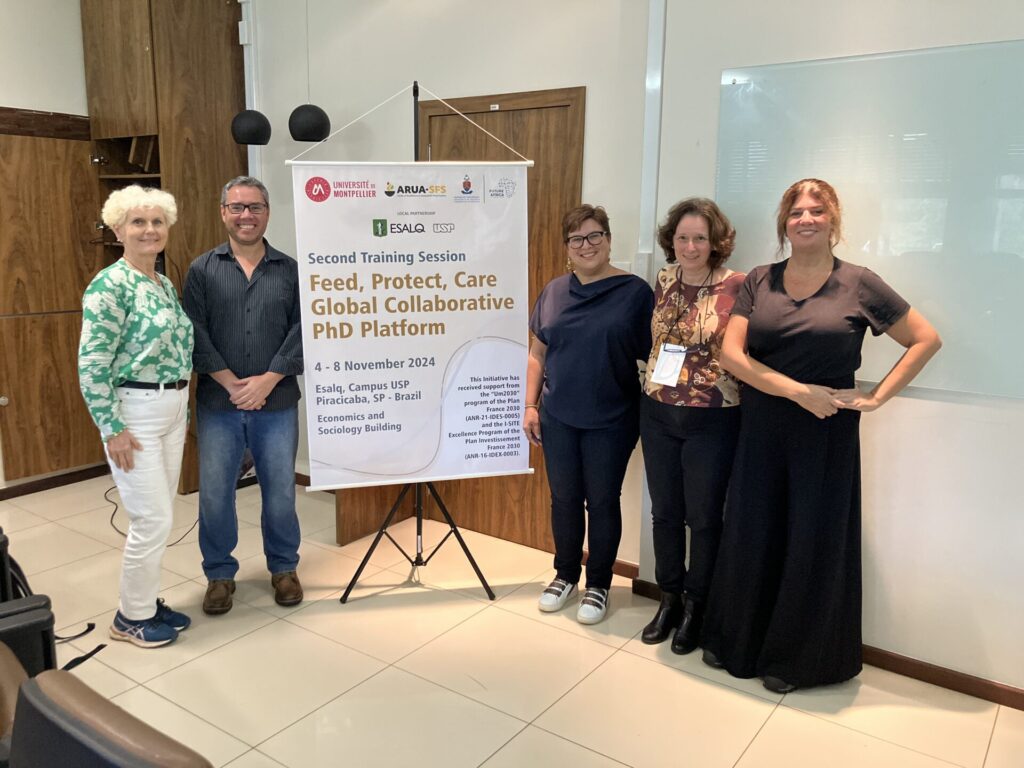
Cohort March 1, 2024 – First doctoral school at the University of Montpellier, France
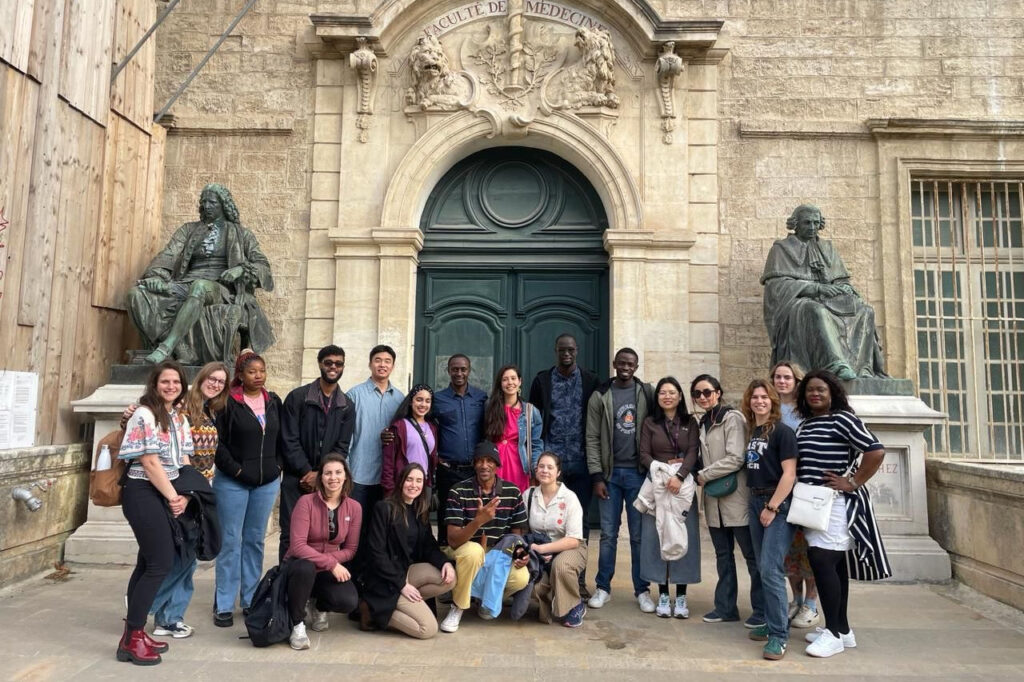
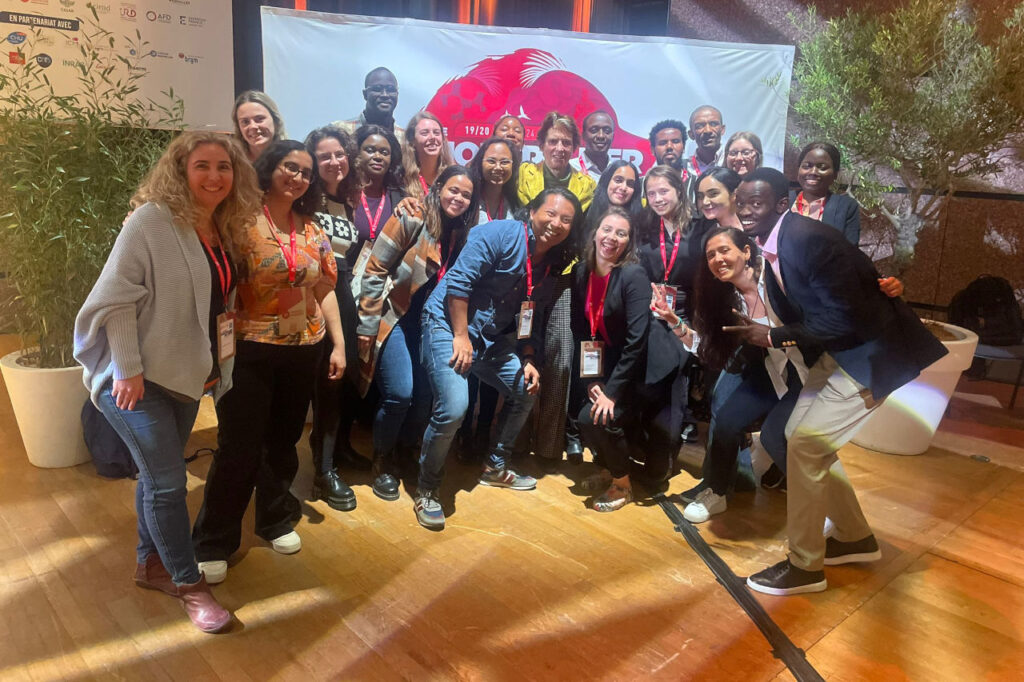
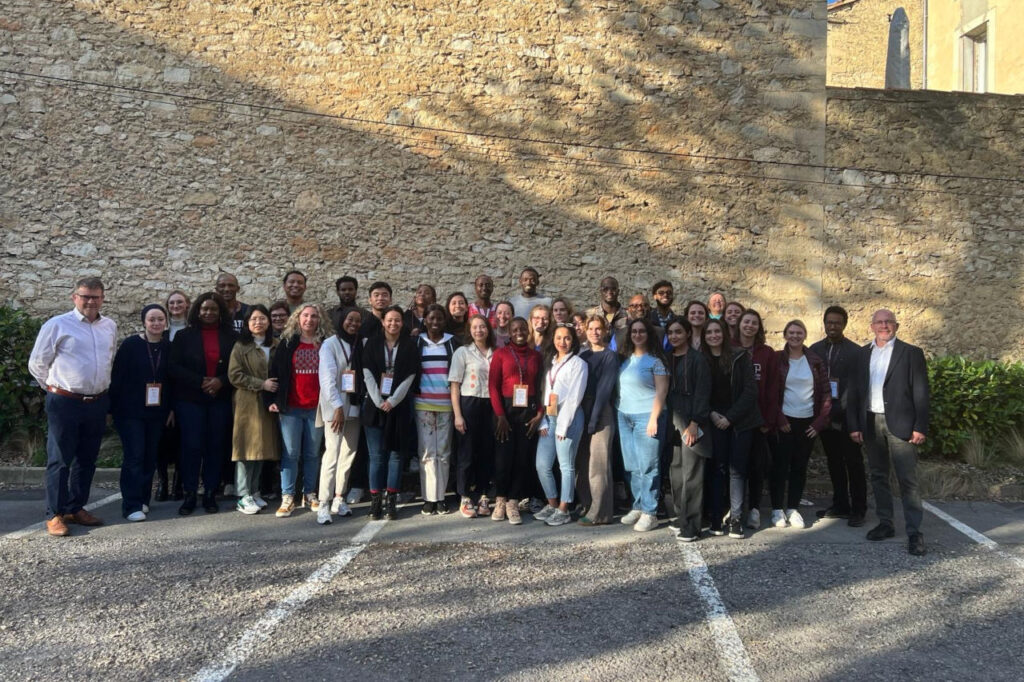
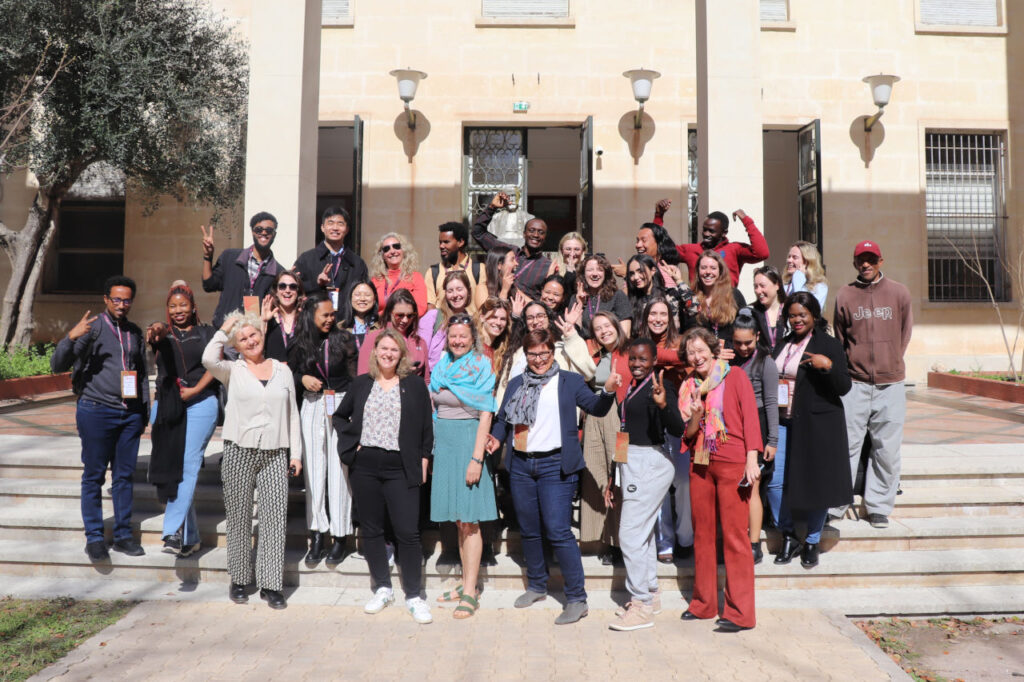
Montpellier Global Days 2024
